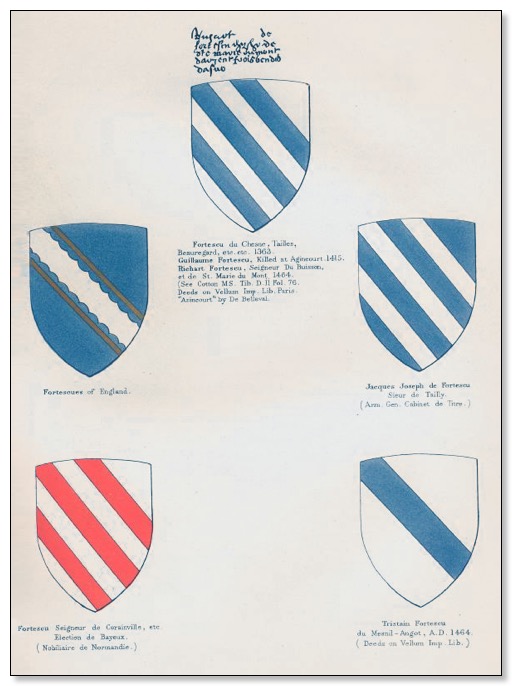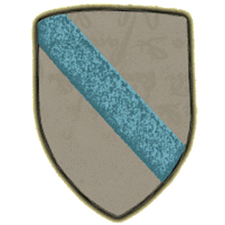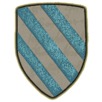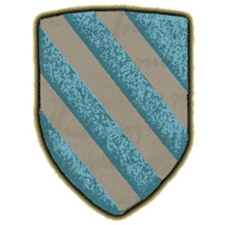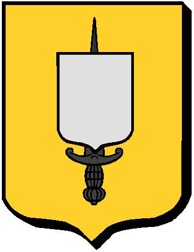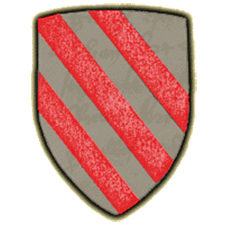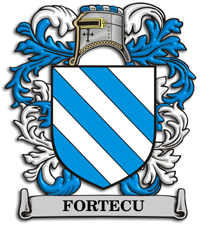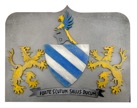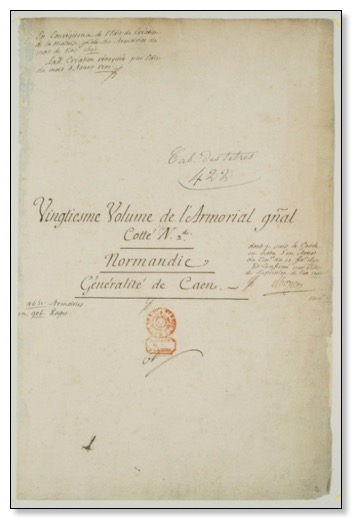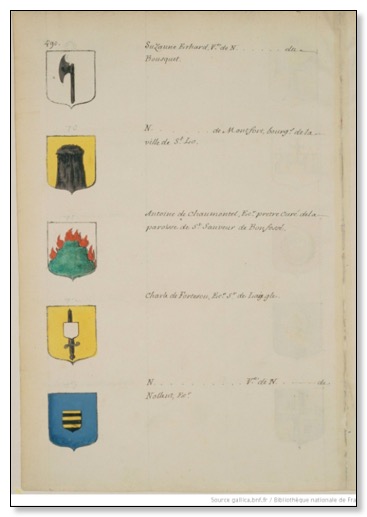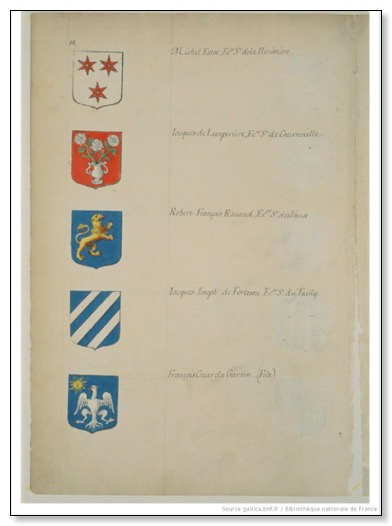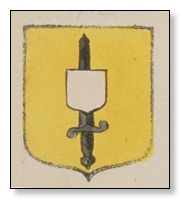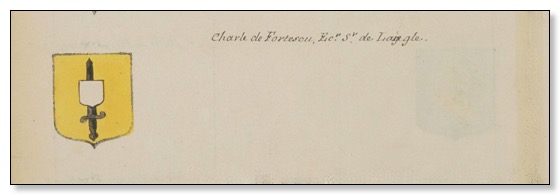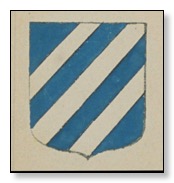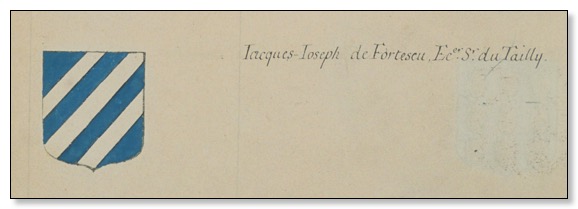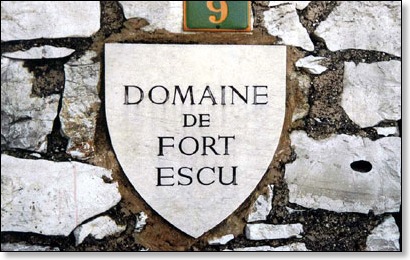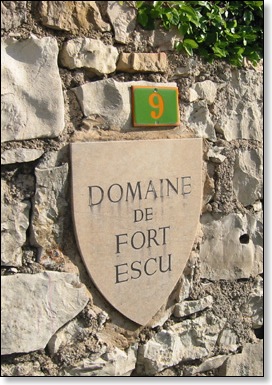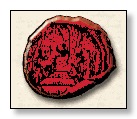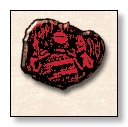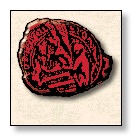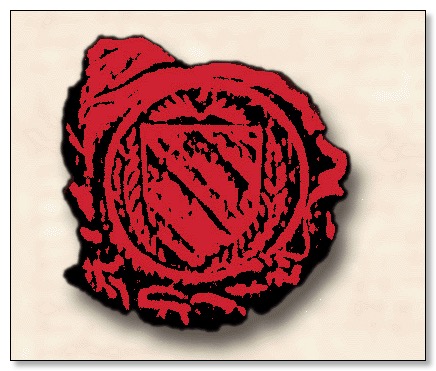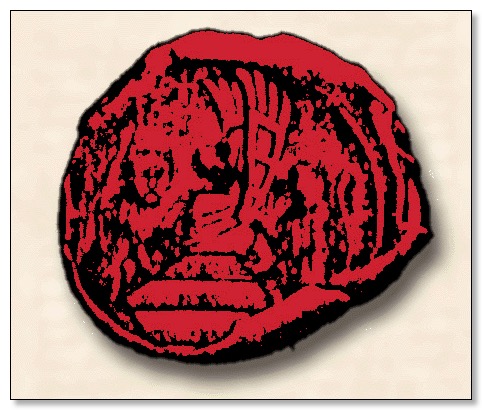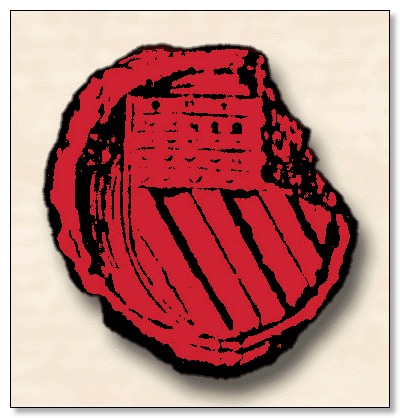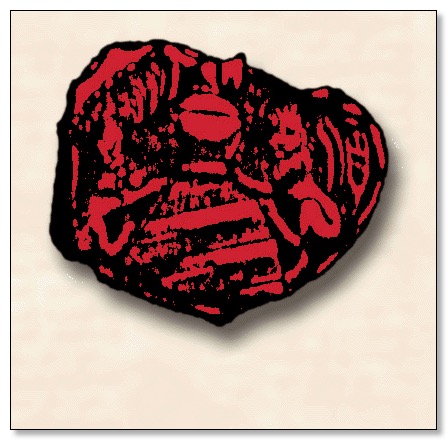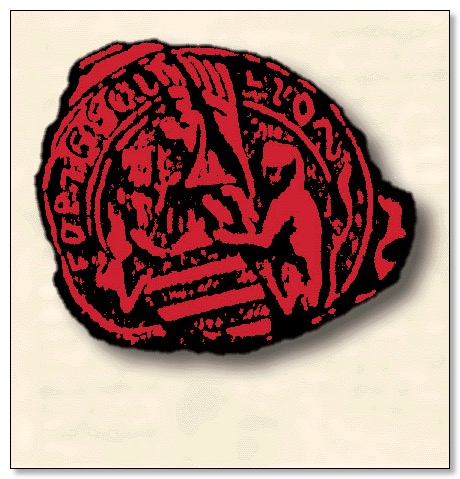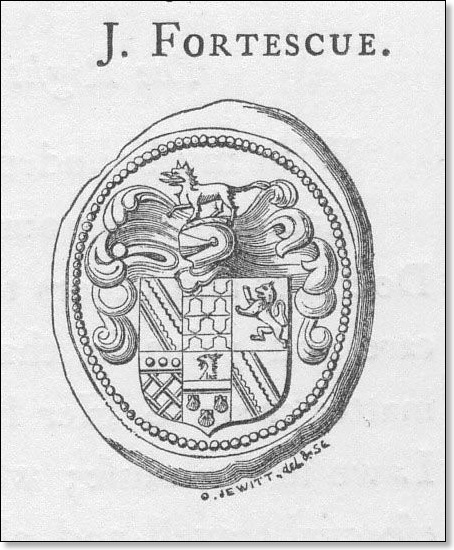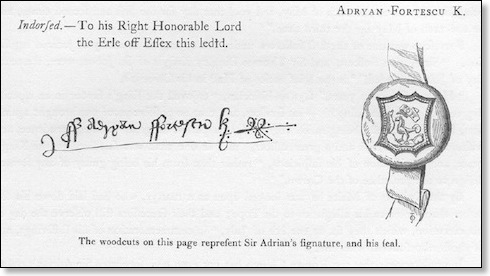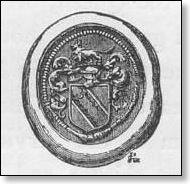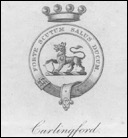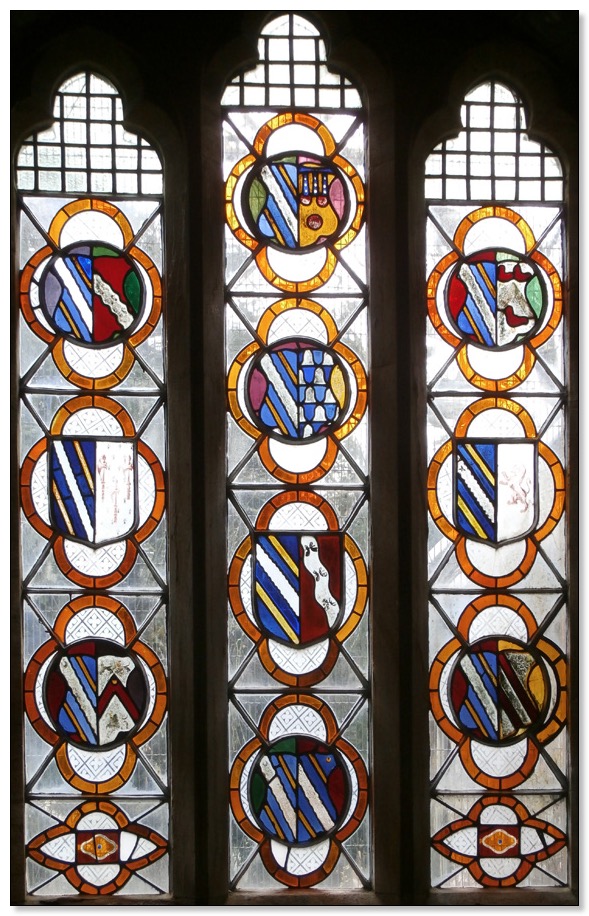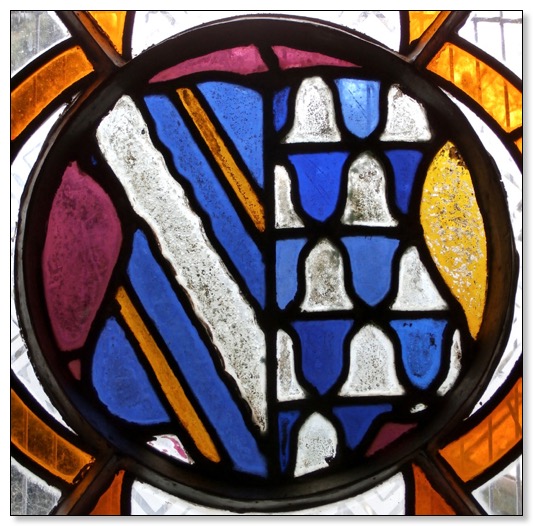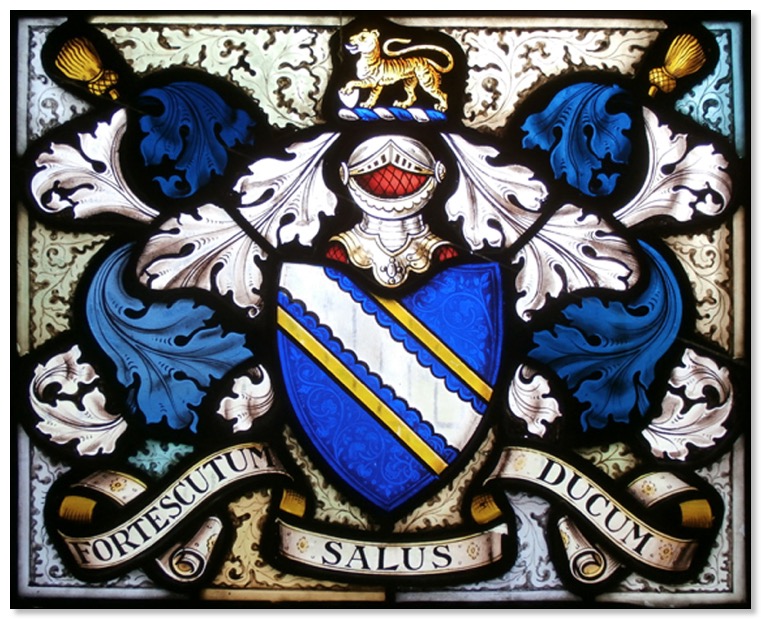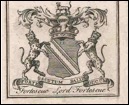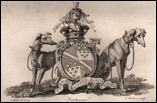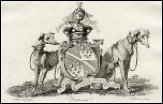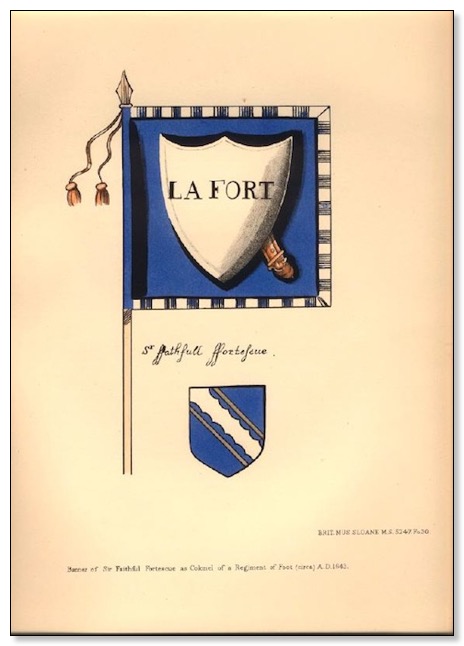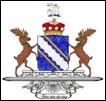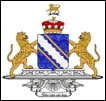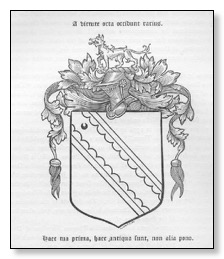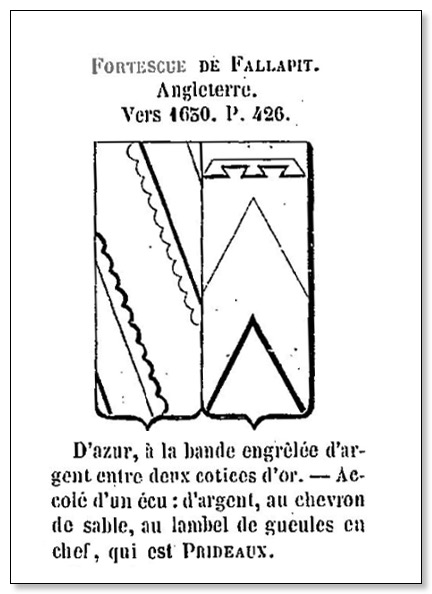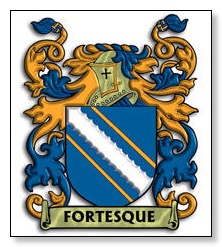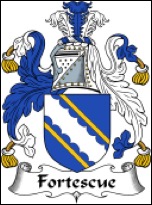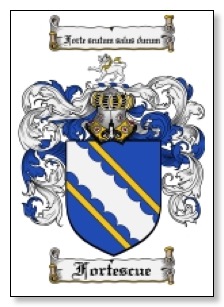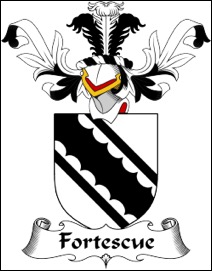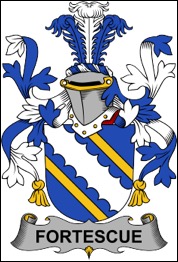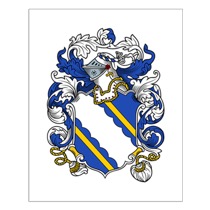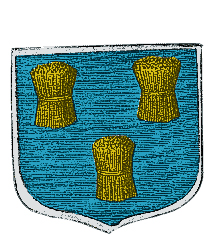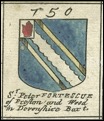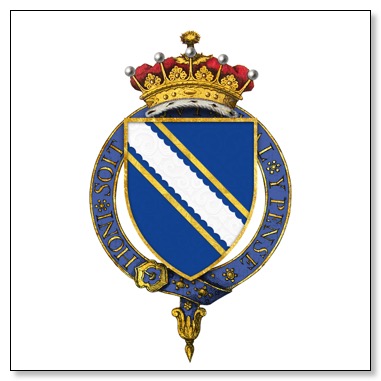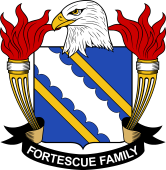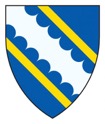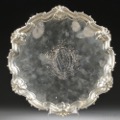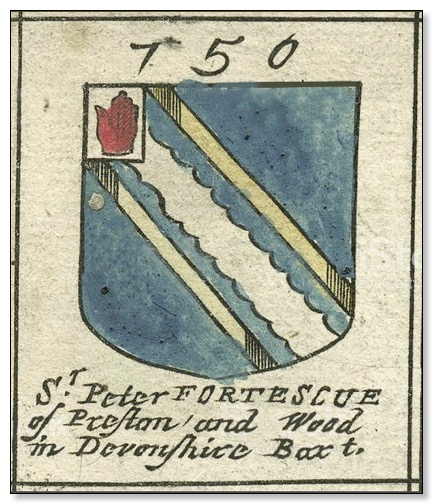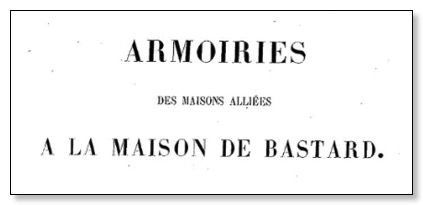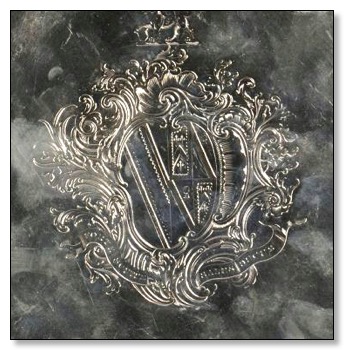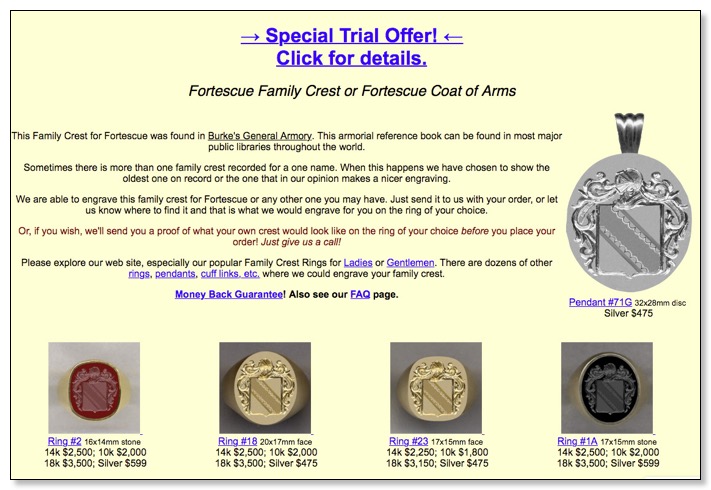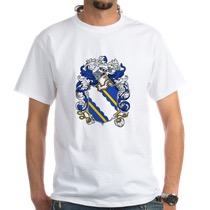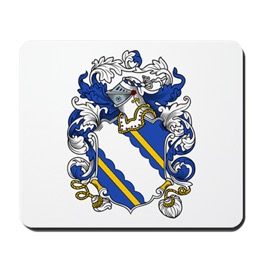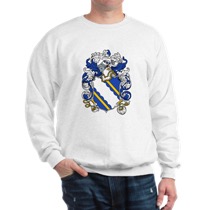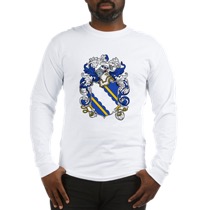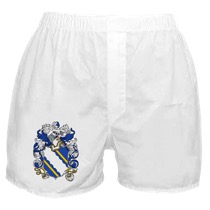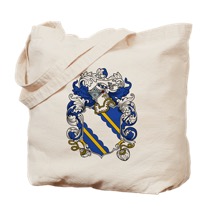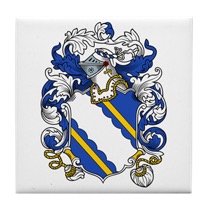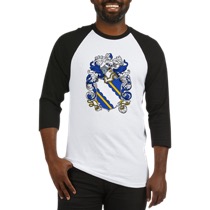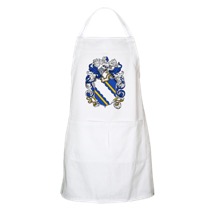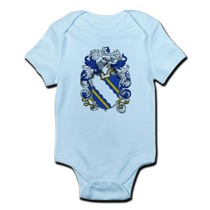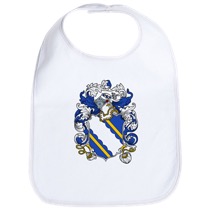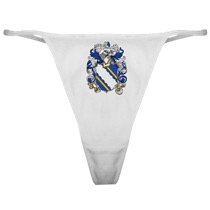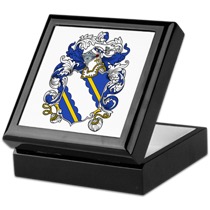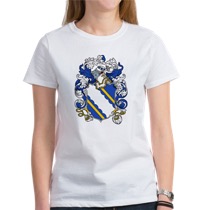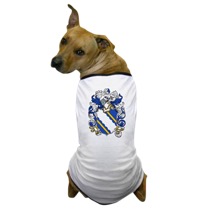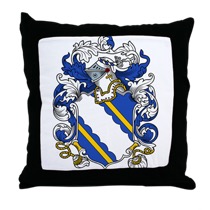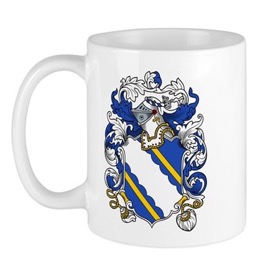Sommaire
@ - VIGNETTES BRANCHE FRANCAISE
@ - Page de Blasons figurant dans le livre de Lord Clermont
@ - Blason français de Tristan fortescu du Mesnil-Angot (1464)
@ - Blason français des seigneurs de Corainville
@ - Blason français de Richard de Fortescu Seigneur du Buisson et de Sainte-Marie-du-Mont (1464)
@ - Armorial Général de Normandie
@ - Blason. Français de Léonor de Fortescu Sieur de la Chesnée, du Taillis, de Beauregard Etc (1363)
@ - Blason français de Charles de Fortescu, Ecuyer, Sieur de Langlet
@ - Blason français de Jacques Joseph de Fortescu Sieur du Taillis
@ - Blason Français représentation contemporaine
@ - Blason Français représentation contemporaine d'un ami pour la famille de Camille Defortescu
@ - Ecusson Domaine Winifried Fortescue
@ - Sceau Reproduit par Lord clermont à la page 457 de son livre.
@ - Sceau Reproduit par Lord clermont à la page 459 de son livre.
@ - Sceau Reproduit par Lord clermont à la page 461 de son livre.
@ - Sceau Reproduit par Lord clermont à la page 463 de son livre.
@ - Sceau Reproduit par Lord clermont à la page 476 /1 de son livre.
@ - Sceau Reproduit par Lord clermont à la page 476 /2 de son livre.
@ - La ferme des Taillis - (Notice sommaire et provisoire, J. Deshayes, 2001).
@ - VIGNETTES BRANCHE ANGLAISE
@ - Blason de base des familles anglaises.
@ - Fortescue Stamps
@ - Blason Anglais
@ - Blason Anglais de Sir Fortescue Faithfull (1643)
@ - Armoiries Anglaises
@ - Armoiries Anglaises - House of Fortescue
@ - Armoiries Anglaises - Copperplate Engraving
@ - Armoiries Anglaises - Fortescue Inn, Salcombe, Devon
@ - Sceau figurant sur un manuscrit de Env. 1250
@ - Sceau figurant sur un manuscrit de Env. 1195
@ - Sceau de Richart Fortescu - Mariage FR-GB ? (XIV-XVème Siècle)
@ - Coat of arms of Hugh Fortescue, 1st Earl Clinton, 14th Baron Clinton (1696–1751)
@ - Arms of Hugh Fortescue, 1st Earl Clinton, 14th Baron Clinton (1696–1751)
@ - Engraving of Castle Hill, Filleigh, Devon
@ - Arms of Richard Fortescue (d.1570) of Filleigh.
@ - Quartered arms of Sir William Strode (d.1637) of Newnham, Plympton St Mary
@ - Sceau de Fortescue J.
@ - Sceau de Fortescue Adryan K.
@ - Sceau de Fortescue Sir Faithful - 1627
@ - Arms of Gerald Fortescue
@ - Coat of arms of Fortescue, Earls Fortescue, Viscounts Ebrington & Barons Fortescue
@ - Armoiries Anglaises et Devise familiale
@ - American Coat of Arms for Fortescue
@ - Fortescue banner of arms in the Fortescue Chapel of St Paul's Church
@ - Coat of Arms of Hugh Fortescue, 5th Earl Fortescue
@ - Lord fortescue Coat of Arms Lithograph 1776 Heraldry
@ - Heraldic Panel Chichester Monument - Pilton Devon (1569)
@ - Drawing of monument in Ebrington Church, Gloucestershire, of Sir John Fortescue (c.1394-1479)
@ - Arms of Sir John fortescue Judje
@ - Image from page 570 of "A genealogical and heraldic history...
@ - 1779 Antique Print ~ Fortescue ~ Family Crest Coat of Arms
@ - Detail from 1878 stained glass window in Buckland Filleigh Church, Devon
@ - Fortescue Coat of Arms, Fortescue Family Crest on Cafepress
@ - Peter Fortescue - Armoiries sur cuivre du XVIIe siècle et de Fortescue
@ - The Right Honourable Matthew Fortescue, Baron Fortescue
@ - Rings and Pendants Engravings
@ - Fortescue Impaling Beauchamp Of Ryme Buckland Filleigh Church Devon
@ - Fortescue Heraldic Window Buckland Filleigh Church Devon
@ - 1768 COLLINS - Heraldry, Coat of Arms, Araldica, Blasone (HUGH FORTESCUE)
@ - The Halswell Armorial
@ - Knottesford, Francis Fortescue - William Augustus Brewer Bookplate Collection
@ - Bloodstone Fob Seal With Fortescue Family Crest
@ - Plates with fortescue arms
@ - George II Sterling Silver Salver, London, 1756-57
@ - Bucket Wine Cooler
Pour compléter : http://fortescue.org/gallery/main.php?g2_itemId=273![]()


Blason français de Richard de Fortescu Seigneur du Buisson et de Sainte-Marie-du-Mont (1464)
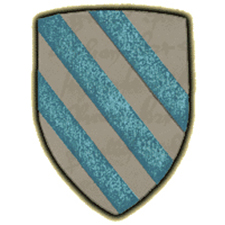
![]()


Blason. Français de Léonor de Fortescu Sieur de la Chesnée,du Taillis, de Beauregard Etc (1363)

Blason repris par les seigneurs de La Chesnée, du Taillis, de Beauregard Etc
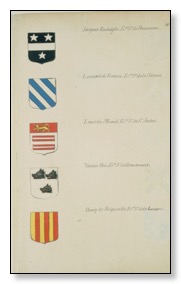
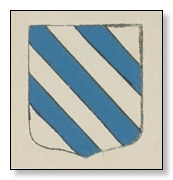
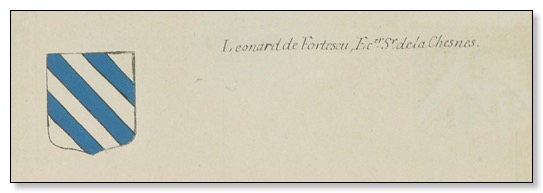
![]()


La ferme des Taillis - (Notice sommaire et provisoire, J. Deshayes, 2001).
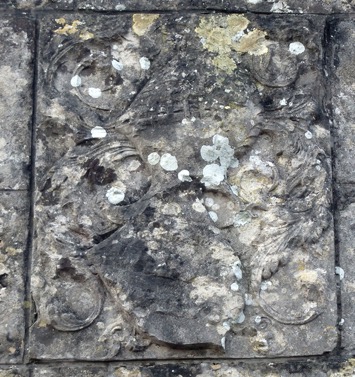
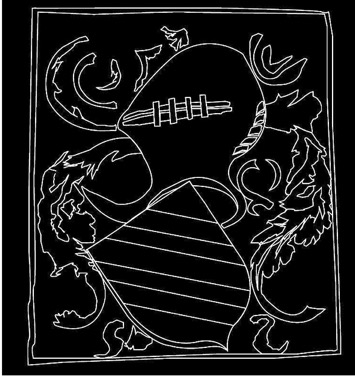
La ferme des Taillis, situé non loin de l'église d'Alleaume, appartenait initialement à la famille Rouxel, qui est attestée comme noble à Valognes à la fin du XVIe siècle. Elle s'est ensuite transmise aux Fortescu, très vieille famille du Cotentin, dont les armes (d'argent à trois bandes d'azur), coiffées d'un cimier empanaché, sont visibles au dessus du portail ouvrant sur la cour. Tanneguy Fortescu, fils de Nicolas Fortescu et d’Anne le Jay, né vers 1639, portait en 1661 le titre de « sieur du Taillis ». Il rendit aveu au roi de ses terres de Valognes en 1675. Après sa mort, le domaine du Taillis revint à son fils aîné, Jacques-Joseph, né le 24 janvier 1669 à Alleaume, qui portait le titre d’écuyer et de sieur du Taillis. Il épousa en 1695 demoiselle Catherine Touraine, qui mourut le 14 novembre 1729 à Alleaume. Le 12 mars 1731 il épousait en deuxième noce demoiselle Madeleine Antoinette Piquod, de 25 ans sa cadette, fille de Charles Piquod, écuyer, seigneur et patron de Ste-Honorine, Brillevast, Boutron et autres terres et seigneuries. Il semble que Jacques Joseph de Fortescu n'ait pas eu d'enfants de ces deux mariages légitimes. Il décéda à Alleaume le 18 février 1745. Le titre de sieur du Taillis ne fut plus repris après.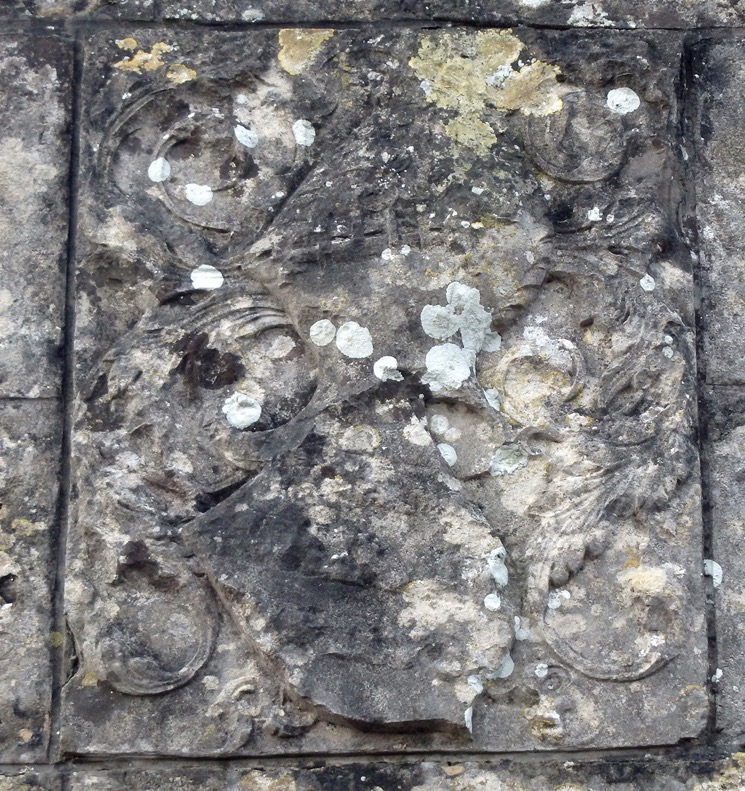
![]()


Sceau Reproduit par Lord clermont à la page 457 de son livre.
Cabinet des Titres (Bib. Imp.), dossier " Fortescu ".
Le sceau vient de la Collection Clairembault. Il est accroché à un reçu. (1379)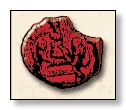 .
. 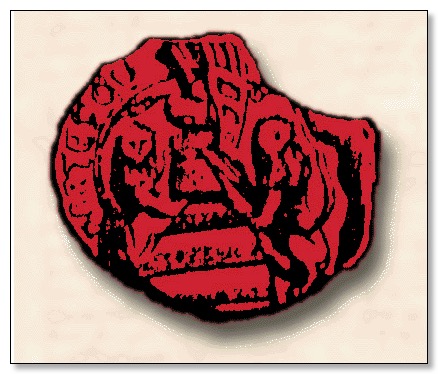
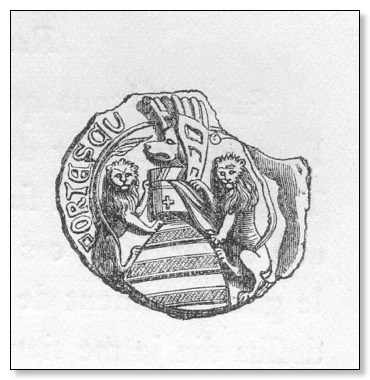
![]()


Sceau de Richart Fortescu - Mariage FR-GB ? (XIV-XVème Siècle)
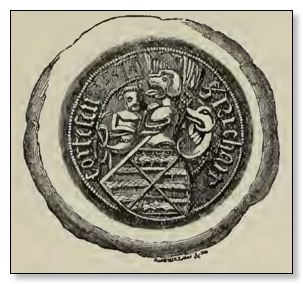
A History of the Family of Fortescue in all its Branches - P172
"… A rather remarkable relic of Sir Faithful's occupation of his Antrim eftate came to light fome years ago, namely, an ancient feal of arms, as shown in the annexed woodcut, with the words " S. Richart Fortefcu." It was found either upon or clofe to the former Fortefcue property. The arms are thofe of the Norman Fortefcues, viz., a bend, not engrailed, between two bendlets, quartering the arms of the Englifh Fortefcues, where the bend is engrailed. This coat implies a marriage-alliance between one of the Norman and one of the Englifh houfes. The feal has been pronounced by experts to be French of the fourteenth or fifteenth century…"
![]()


Blason Français représentation contemporaine d'un ami pour la famille de Camille Defortescu
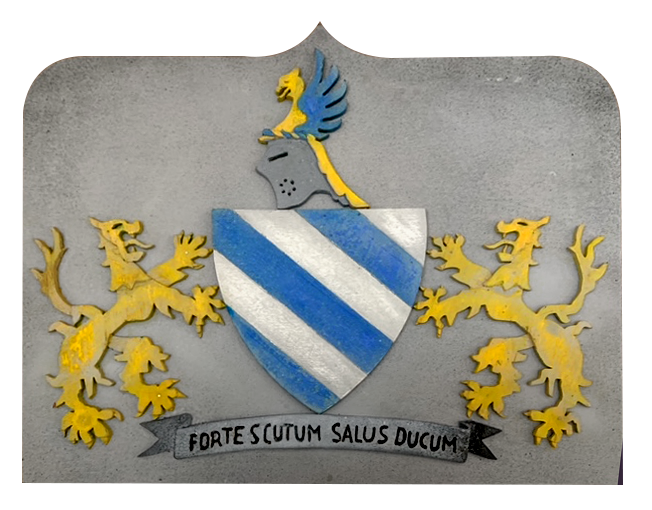
![]()


Fortescue Stamps
Fortescue (Stamp 1)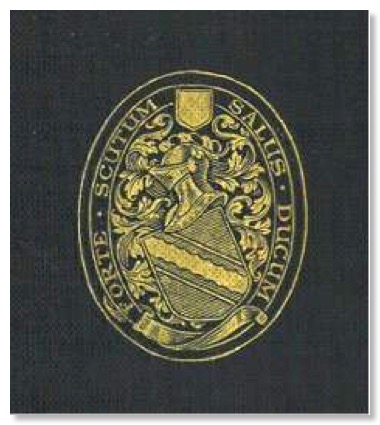
Dimensions: 52mm x 40mm
Arms Azure a bend engrailed cotised Helmet of a esquire
Motto FORTE SCUTUM SALUS DUCUM
Fortescue, Thomas (1683 - 1769) (Stamp 1)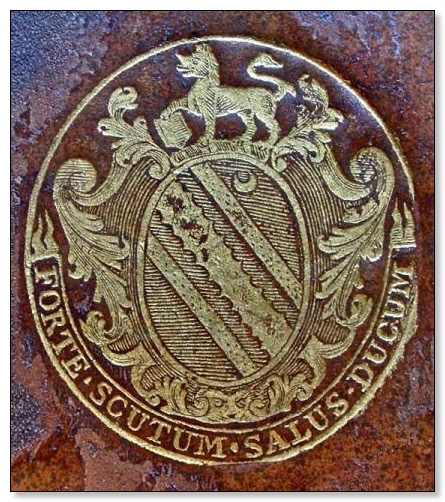
escutcheon | Page 5 | British Armorial Bindings
Dimensions: 46mm x 49mm
Arms Azure a bend engrailed argent cotised
or a crescent for difference Crest
A leopard passant holding an escutcheon argent
Motto FORTE • SCUTUM • SALUS • DUCUM
Fortescue, George Matthew (1791 - 1877) (Stamp 1)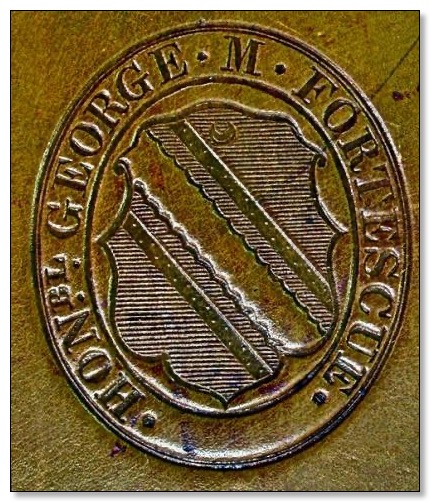
Dimensions: 38mm x 30mm
Arms Azure a bend engrailed cotised
a crescent for difference Legend HON.BL.+ GEORGE + M. + FORTESCUE![]()


Arms of Sir John fortescue Judje
Arms of the Honourable Sir John fortescue Knight
One of the Judges of his Majesties Court of Kings Bench
![]()


Knottesford, Francis Fortescue - William Augustus Brewer Bookplate Collection
Rev. Francis Fortescue Knottesford, Bridgetown House.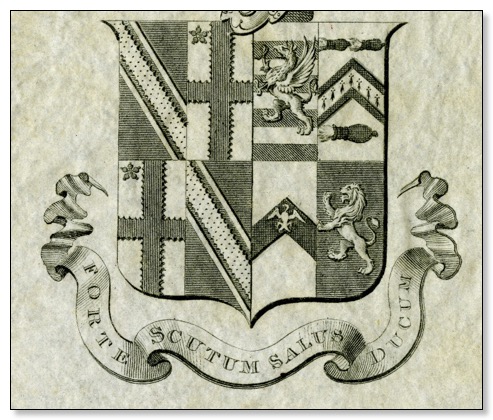
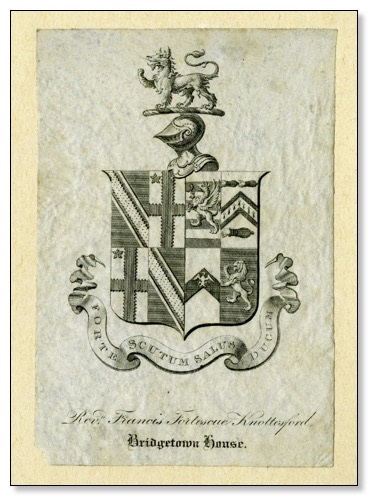
William Augustus Brewer Bookplate Collection
Knottesford, Francis Fortescue![]()


The Halswell Armorial
The Halswell Armorial – Halswell Park
SEPTEMBER 28, 2018 BY ROY BOLTON
The Halswell Armorial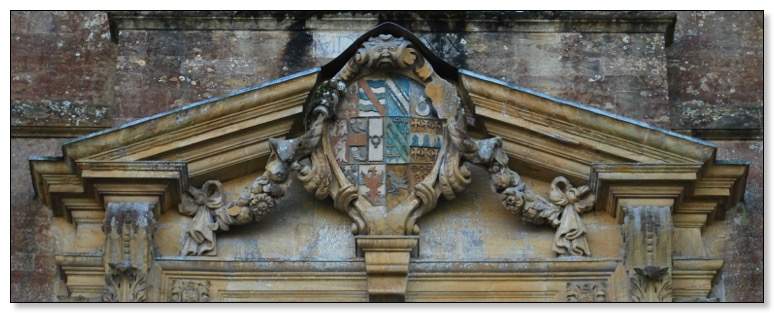
Above the main door on the Baroque Wing at Halswell House is an elaborately quartered coat of arms which no visitor can fail to miss.
Carved and painted at the completion of this part of the house in 1689, a date stone sits just above the pediment, it commemorates not only the building of this grand part of the house but also the owners who made it possible; Sir Halswell Tynte (1649-1702) and Grace Fortescue (c. 1622-1694) who married in 1671.
The left side of the quartering records the Tynte (Halswell) family and the right side records the Fortescue’s and their forebears.
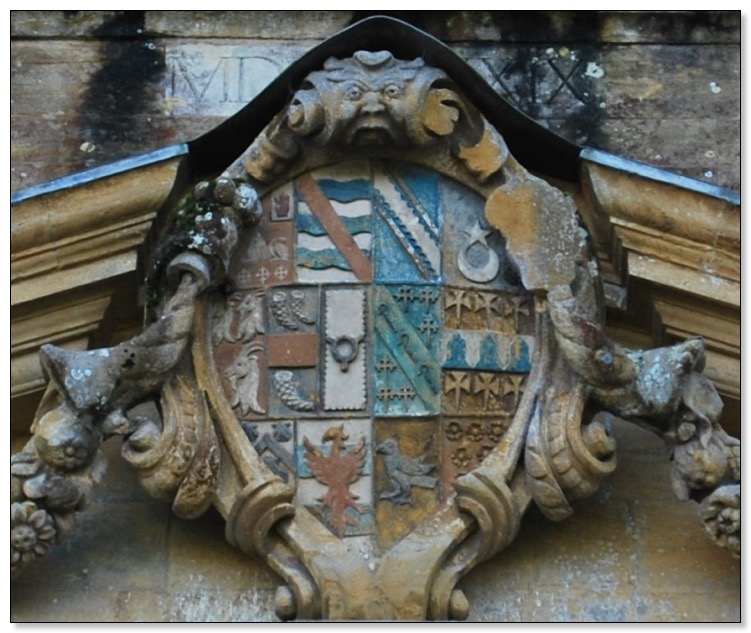
LEFT to RIGHT, TOP to BOTTOM
Tynte, Halswell, Fortescue, Densell
Gatcombe, Tremayle, Trivett, de Waere (Trewin), de Filleigh,
Farway, Speke, Unknown, Unknown
One of the legends that surround the family who lived at Halswell is that of the first Tynte who, as a young knight of the Arundel Family, is said to have gone on the Third Crusade with King Richard the Lionheart. He was singled out for his bravery at the 1192 battle of Ascalon. The King observing him is supposed to have said:
“ .. the maiden knight had borne himself like a lion, and had done work enough for six crusaders“
For which service to the Christian cause the King is said to have conferred on the young Knight his armorial bearings (Heraldic device), a lion argent on a field of gold between six crosslets of the first and the motto Tynctus Cruore Saraceno (“tinged with Saracen blood”).
The red hand of a small white shield in the upper right corner of the Tynte arm is the heraldic emblem of a baronet, the Tynte baronetcy, which existed from 1674-1785.
The heraldic descriptions of the arms of each family
Tynte: Gules, a lion couchant between six cross crosslets argent
Halswell: azure, three bars wavy argent over all a bend gules
Fortescue: Azure, a bend engrailed argent cottised or
Densell: Sable, a mullet in chief and a crescent in base argent
Gatcombe: Gules, three goats’ heads erased argent
Tremayle: A fess between three brogues
Trivett: Argent, a round trivet sable within a bordure sable
de Waere (Trewin): Argent, on a bend vert between six crosses crosslet fitchee gules three crozierheads or
De Filleigh: Gules, a fess vairee between 6 crosses formee or
Farway of Penhallam: Sable, a chevron between three escallops argent
Speke: Argent, two bars azure over all an eagle with two heads displayed gules.
Unknown:
Unknown:
At the time of writing we are yet to discover the identities of the last two coats of arms from the Fortescue side of these quartered arms. If there are any Fortescue family history specialists who might know the answer do please get in touch!
~RB
![]()


The coat of arms of the well-known liturgical author and priest, Adrian Fortescue
Fortescue
The coat of arms of the well-known liturgical author and priest, Adrian Fortescue.
An excellent motto that perfectly plays on his name.![]()


1768 COLLINS - Heraldry, Coat of Arms, Araldica, Blasone (HUGH FORTESCUE)
eBay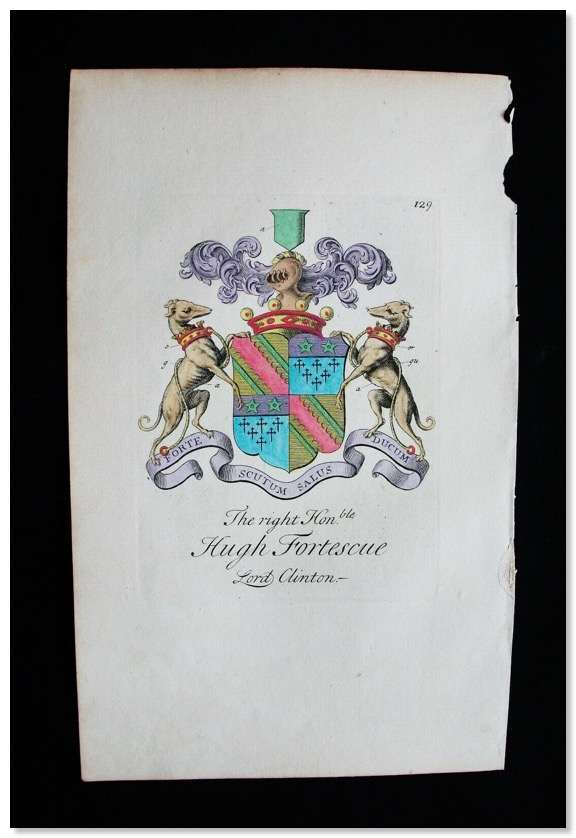
1768 COLLINS - Heraldry, Coat of Arms, Araldica, Blasone (HUGH FORTESCUE) #129![]()


Arms of Richard Fortescue (d.1570) of Filleigh
Arms of Richard Fortescue (d.1570) of Filleigh.
Wikimedia Commons
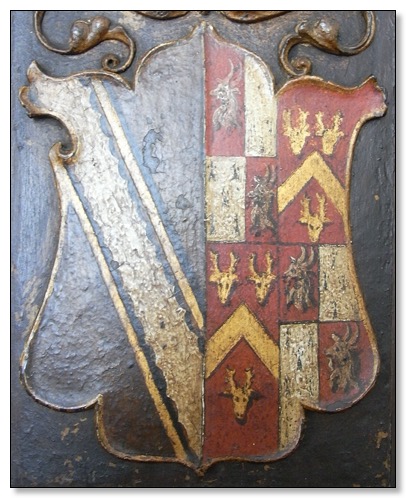
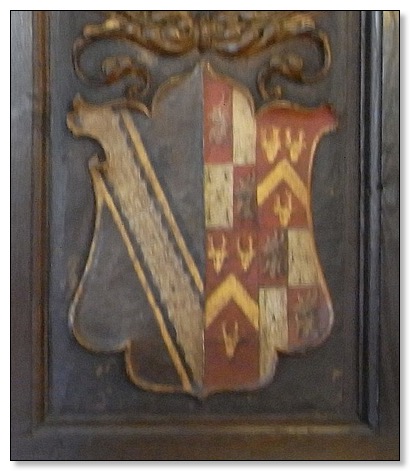
Detail from overmantel now at Simonsbath House, Exmoor, originally at Weare Giffard Hall, Devon.
Impalement as follows: Baron: Fortescue, Femme: Quarterly 1st & 4th: Morton, 2nd & 3rd Hagget,
per hand written framed note c.1900 written by member of Fortescue family.
Wikimedia Commons
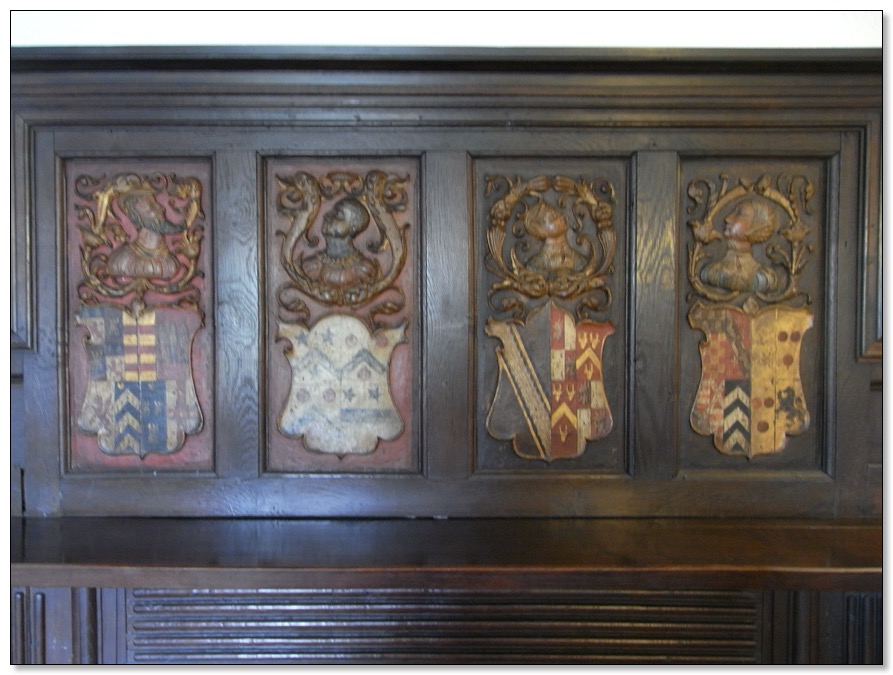
Fortescue family heraldic panel from Weare Giffard Hall, Devon, now in Simonsbath House, Exmoor, both former residences of the Fortescue family . It may be dated c.1550 based on the persons represented, the Renaissance elements of portrait quasi-medallions, the grotto-esque decoration and the shape of the shields. Shields from L to R: First shield: Arms of w:Francis Russell, 2nd Earl of Bedford (1527–1585), Lord Lieutenant of Devon, of Bedford House, Exeter and of Chenies in Buckinghamshire (the arms of Sapcote, his mother are quartered) (see: Middlesex Heraldry Society - Chenies (Bedford Chapel); HERALDRY of the BEDFORD CHAPEL CHENIES www.middlesex-heraldry.org.uk ) Quarterly of 7: 1st grand quarter: 1 and 4, Argent, a lion rampant gules on a chief sable three escallops of the first (Russell); 2 and 3: Azure, a tower argent (de la Tour); 2: Or, three bars gules (Muschamp) 3: Gules, three herrings hauriant argent (Herringham) 4: Should be: Sable, a griffin segreant between three cross-crosslets fitchy argent (Froxmere), tinctures shown incorrectly here. 5: Sable, three chevronels ermine with a crescent for difference (Wyse) 6: Sable, three dovecotes argent (Sapcote) 7: Argent, on a cross gules five mullets or (Semark, an heiress of Sapcote. Anne Semark was the heiress of her aunt Dame Agnes Cheney, from whom she inherited the estate of Chenies in Buckinghamshire, later the seat of the Russell Earls of Bedford. Anne Semark married Sir William Sapcote of Elton Hall, Huntingdonshire, and was the mother of Sir Guy Sapcote, whose daughter and heiress Anne Sapcote married John Russell, 1st Earl of Bedford. (G. E. Cokayne, The Complete Peerage, n.s., Vol.2, p.75)) (written above this first shield is "Some of the coats in this shield appear also in 30 on the west wall of Wear Giffard Hall"). Many of these arms are visible on the monument in Tawstock Church to William Bourchier, 3rd Earl of Bath (1557-1623) and his wife Lady Elizabeth Russell, daughter of Francis Russell, 2nd Earl of Bedford, Lord Lieutenant of Devon; Second shield from L: quarters: 1&4, Pollard of King's Nympton; 2&3, Pollard of Way or Horwood or Westcote. Probably for Sir Lewis II Pollard of King's Nympton, Devon, sergeant-at-law, or of his son Sir Hugh II Pollard of King's Nympton, Devon, who in his youth, following his father's death, had been a ward of Sir John Chichester (1519/20-1569) of Raleigh (arms at far right, shield 4) and to whose daughter Dorothy Chichester he had been married. (Source: Vivian, Lt.Col. J.L., (Ed.) The Visitations of the County of Devon: Comprising the Heralds' Visitations of 1531, 1564 & 1620, Exeter, 1895, p.598, pedigree of Pollard) Third shield from L: the arms of Richard Fortescue(d.1571) of Filleigh, impaling the arms of his wife: baron, Fortescue; femme, quarters 1&4, Morton of Kent, 2&3, Hagget of Kent. (These arms can be seen on monumental brasses of 1571 in Filleigh Church.) Fourth shield from L: Chichester (of 4 quarters) impaling Courtenay (of 4 quarters). Chichester quarters (baron): 1: Chichester; 2: Raleigh of Raleigh, Pilton; 3: Beaumont of Shirwell quartering Willington of Umberleigh; 4: Wyse of Devon; Courtenay quarters (femme) Redvers, Earl of Devon, quartering Courtenay, Earl of Devon. This represents the marriage of Sir John Chichester (1519/20-1569) of Raleigh in the parish of Pilton, near Barnstaple in North Devon, a leading member of the Devonshire gentry, a naval captain, and ardent Protestant who served as Sheriff of Devon in 1550-1551, and as Knight of the Shire for Devon in 1547, April 1554, and 1563, and as Member of Parliament for Barnstaple in 1559, whose large monument survives in Pilton Church. He married Gertrude Courtenay, a daughter of Sir William III Courtenay (1477–1535) "The Great", of Powderham, Devon, MP for Devon in 1529, thrice Sheriff of Devon, in 1522, 1525-6, 1533-4, an Esquire of the Body to King Henry VIII, whom he accompanied to the w:Field of the Cloth of Gold. He was 6th in descent from w:Hugh Courtenay, 2nd Earl of Devon (died 1377), and his own grandson William Courtenay (1527–1557) of Powderham became himself de jure 2nd Earl of Devon under the 1553 creation of that title.
![]()


Heraldic Panel Chichester Monument - Pilton Devon (1569)
Heraldic panel from monument to Sir John Chichester (d.1569) in Pilton Church, Devon.
The shields show the marriage alliances made by his children.
Wikimedia Commons
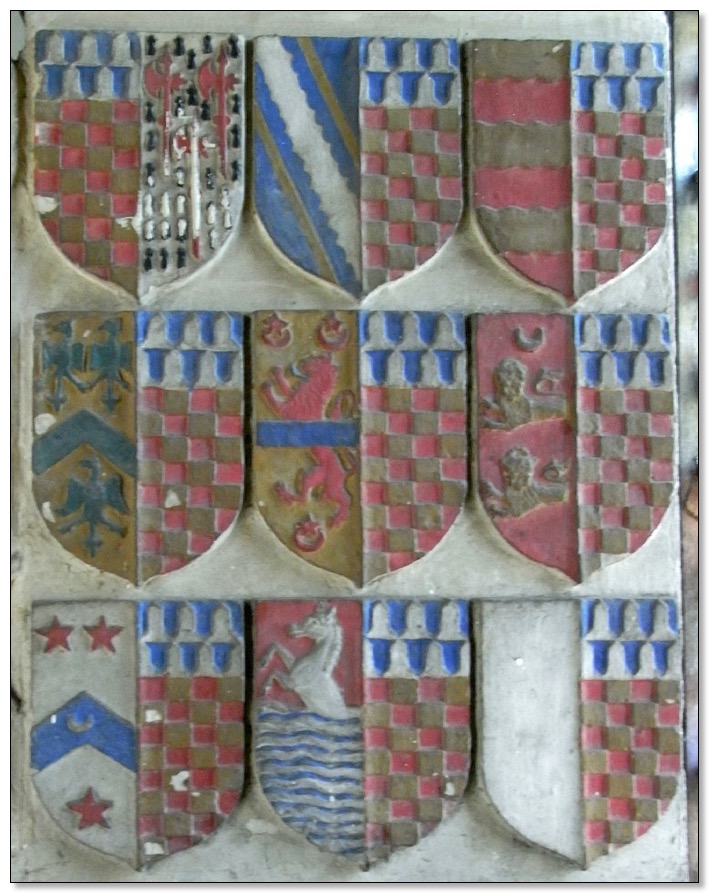
![]()


Drawing of monument in Ebrington Church, Gloucestershire, of Sir John Fortescue (c.1394-1479)
Drawing of monument in Ebrington Church, Gloucestershire, of Sir John Fortescue (c.1394-1479)
Chief Justice of the King's Bench
Wikimedia Commons
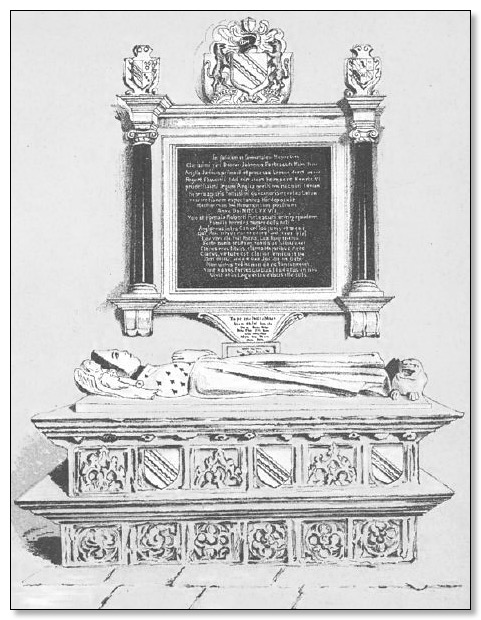
Drawing of monument in Ebrington Church, Gloucestershire, of Sir John Fortescue (c.1394-1479), Chief Justice of the King's Bench. See colour photos[1]. Following description from Clermont, Lord (d.1887), History of the Family of Fortescue in all its Branches, London, 1880, pp.91-94[2]
"He was buried in the parish church, near the communion table on the north side, where his tomb still remains. The following is copied from notes taken by the author on the spot on the 8th of August, 1863. The church is not in itfelf remarkable, nor, except where a good Norman arch remains, near the tower, inside, can it be as old as the Chancellor's time. His monument is against the north wall inside the communion rails. It consists, first, of a large mural tablet, put up in 1677 by Colonel Robert Fortescue, the then owner of the family property, surmounted by the Fortescue arms, bearing the following inscription:
In Felicem et immortalem memoriam Clarissimi Viri Domini JOHANNIS FORTESCUTI Militis Granda;vi Anglic Judicis Primarii Et processu temporis sub I lenr. VI. Rege et Edwardo Principe summi Cancellarii Regis Consiliarii prudentissimi, Legum Angliae peritissimi Necnon earundem Hyperaspistae Fortissimi Qui Corporis Exuvias Laetam Refurrectionem expectantes Flic deposuit. Marmoreum hue monumentum Positum est AD MDCLXXVII Voto et Expends Roberti Fortefcuti Armigeri eiusdem Familias Haeredis nuper defuncti Angligenas intra Cancellos Juris et iEqui Qui tenuit, Cineres jam tenet Urna Viri. Lex viva ille fuit Patriae, Lux fplendida Legis,
Forte bonis fcutum, fontibus et scutica. Clarus erat titulis, clarus Majoribus, Arte Clarus, virtute aft clarior emicuit. Jam micat in tenebris, veluti Carbunculus Orbi, Nam Virtus radios non dare tanta nequit. Vivit adhuc Fortefcutus laudatus in iEvum ; Vivit et in Legum laudibus ille fuis.
In Englifh thus (trans: Biographia Britannica):
To The happy and immortal memory Of that moft famous man Sir John Fortescue, An ancient Knight, Chief Juftice of England, And in procefs of time, under Henry VI. And Prince Edward, High Chancellor. Of the King, the mod prudent councellor, In the laws of England profoundly learned, And of thefe laws alfo A Champion Invincible; Whofe earthly remains, in expectation of A joyful Refurrection, Are here depofited; This marble monument Is erected MDCLXXVII. By the direction and at the expense of Robert Fortefcue, Efq. The direct heir of this family, lately deceafed.
Below the tablet on a small slab are these words :
— To perpetuate the memory of that learned and excellent man, Chancellor Fortescue, this monument was repaired by his descendant, Matthew Lord Fortescue, in the year 1765."
And on a brass plate, still lower on the wall:
Restored by the Right Honble. Hugh 3rd Earl Fortescue, AD 1861".
Below this is the tomb itself, surmounted by a full-length figure of the Chancellor in red robes and cap, very brilliant in their new paint, lying on his back, with the hands joined as in prayer. On the three sides of the tomb the family arms are repeated several times on shields, also coloured newly. The tomb and figure are suppofed to have been erected soon after the Chancellor's death. The print annexed, from Mr. Maunde's drawing, is a perfectly correct representation of the whole. The antiquary Thomas Hearne in his unpublished diary corrects a mistake made by some authors as to the age of the tomb. He writes, November 29th, 1733:
"Sir Robert Atkyns, in his description of Gloucestershire, hath made a gross mistake (in which he hath been followed by Bishop Gibson, the author of the 'Magna Britannia', &c. &c.) in asserting that my Lord Chancellor Fortescue's monument, with his effigies, in Ebburton Church, was set up by his heir in 1677. For tho' it be true that in the year 1677 a monument with an inscription was fixed in the wall on the north side the chancel, yet that with his effigies (which is a raisfed monument of free-stone, finely painted in colours, standing on the north fide the chancel, within the communion rails) was erected, as any eye may witness by the form of the workmanship, immediately after his death."
The writer of Fortescue's Life, in the "Biographia Britannica", in like manner says that the old tomb and figure were, judging by their appearance of antiquity, and by the style of their workmanship, probably executed foon after his interment.
Source : http://fortescue.org/gallery/main.php?g2_itemId=424
Author : "Mr. Maunde"
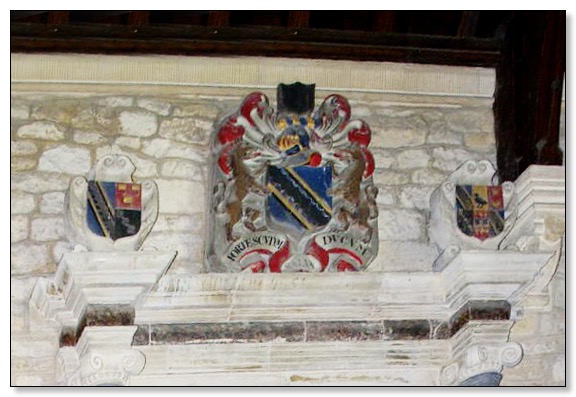
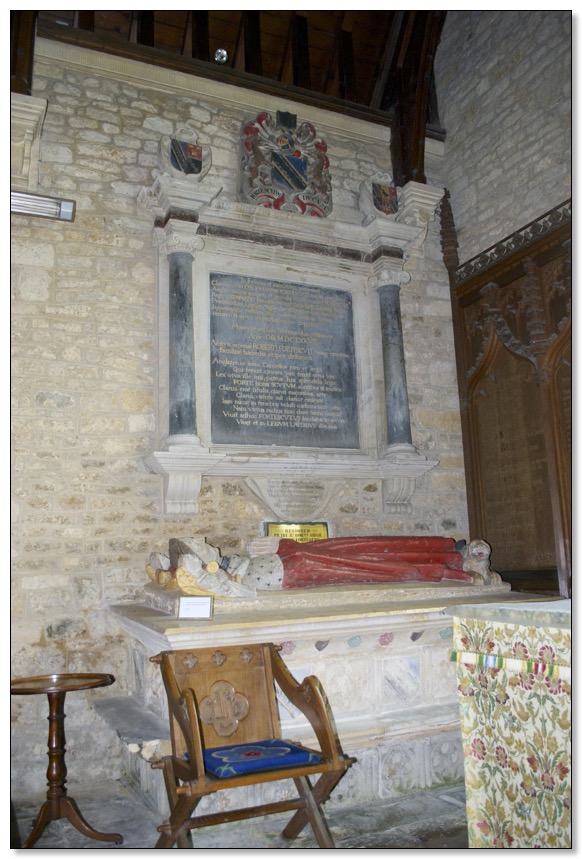
Source : http://fortescue.org/site/manor-houses/ebrington-manor-gloucestershire/![]()


Fortescue Heraldic Window Buckland Filleigh Church Devon
Ancient stained glass window in Buckland Filleigh Church, Devon, displaying various historic impaled arms of the Fortescue family of Spridleston in the parish of Brixton, Devon. The estate of Spridleston was inherited by the Fortescues of Buckland Filleigh, who married the Fortescue heiress of Spridleston. The stained glass was brought here from Spridleston, as is explained in a manuscript note by Rev. Richard Lane (d.1858), Vicar of Brixton, as follows: "The windows in the front of the house were ornamented with a variety of armorial bearings in painted glass which were taken down a few years since and given to John Inglett-Fortescue late of Buckland Filleigh who placed them in his parish church" (see: File:NotesOn SpridlestonBrixtonDevon ByRevRichardLane Died1858.jpg[1]. John Inglett-Fortescue died in 1840, aged 82. He was the grandson of Caleb Inglett (1702-1752) of Dawlish by his wife Rebecca Fortescue (1699-1764), heiress of Buckland Filleigh and Spridleston. The shields were replaced in an apparently random order.
Heraldry:
- Left lancet window, top to bottom:
- Azure, a bend engrailed argent, plain cotised or (Fortescue) impaling Gules, on a bend wavy argent three water bougets sable (Falwell of Falwell, Devon (Pole, Sir William (d.1635), Collections Towards a Description of the County of Devon, Sir John-William de la Pole (ed.), London, 1791, p.482)). For Isabel or Mabel Falwell, daughter and heiress of John Falwell of Falwell (today Velwell) in the parish of Rattery, Devon, and wife of William Fortescue of Wimpstone, brother of Sir John Fortescue (fl.1422) Captain of Meaux. (Vivian, p.352)
- Fortescue impaling Ermine, three battle-axes gules (Denys of Holcombe Burnel)
- Fortescue impaling Argent, a chevron gules between three hounds courant sable (Sackbye). In the Carew Scroll of Arms
- Centre lancet window, top to bottom:
- Fortescue impaling Or, three torteaux a label of three points azure each charged with three plates (Courtenay of Powderham). Nicholas Fortescue (a son of John Fortescue (d.1538) of Spridleston by his wife Alice Cookworthy, daughter of John Cookworthy (Vivian, Heraldic Visitations of Devon, p.353)) married Elizabeth Courtenay, daughter of William Courtenay of Loughtor in the parish of Plympton Sy Mary, Devon, a junior branch of Courtenay of Molland.
- Fortescue impaling vair (Beauchamp of Ryme (Pole, p.469)). For Elizabeth Beauchamp, daughter of Sir John Beauchamp and a sister and co-heiress of Thomas Beauchamp of Ryme (Vivian, p.352) (Ryme Intrinseca) in Dorset, wife of William Fortescue of Wimpstone, parents of of Sir John Fortescue (fl.1422) Captain of Meaux. (Vivian, p.352). Beauchamp of Ryme in Dorset, a junior branch of the Beauchamp feudal barons of Hatch Beauchamp in Somerset.
- Fortescue impaling Gules, on a bend wavy argent three water bougets sable (as top left) (Falwell of Falwell, Devon (Pole, Sir William (d.1635), Collections Towards a Description of the County of Devon, Sir John-William de la Pole (ed.), London, 1791, p.482))
- Fortescue impaling Fortescue, with a crescent or for difference
- Centre lancet window, top to bottom:
- Fortescue impaling Argent, three birds gules; the trace of a chevron is visible, which would make these the canting arms of Cockworthy/Cookworthy of Ernscombe (Cockworthy in the parish of Yarnscombe, Devon): Argent, a chevron between three cocks gules (Pole, p.475). John Fortescue (d.1538) of Spridleston married Alice Cookworthy, daughter of John Cookworthy (Vivian, Heraldic Visitations of Devon, p.353)
- Fortescue impaling Argent, a lion rampant gules (Vivian of Trelowarren in Cornwall ?[4] John Fortescue (born 1514) of Spridleston married Florence Vivian, a daughter of Richard Vivian of Trelowarren (Vivian, p.353).
- Fortescue impaling Argent, two bendlets gules (Haket?)
![]()


Detail from 1878 stained glass window in Buckland Filleigh Church, Devon, showing heraldic achievement of Sir Faithful Fortescue
Detail from 1878 stained glass window in Buckland Filleigh Church, Devon, showing heraldic achievement of Sir Faithful Fortescue (1585–1666), a royalist commander during the English Civil War. Window erected in his memory jointly by his lineal descendants Thomas Fortescue, 1st Baron Clermont (1815-1887), an Irish Whig politician and the historian of the Fortescue family, and Chichester Fortescue, 1st Baron Carlingford (1823-1898), as stated in stained glass inscription.
![]()


The Right Honourable Matthew Fortescue, Baron Fortescue
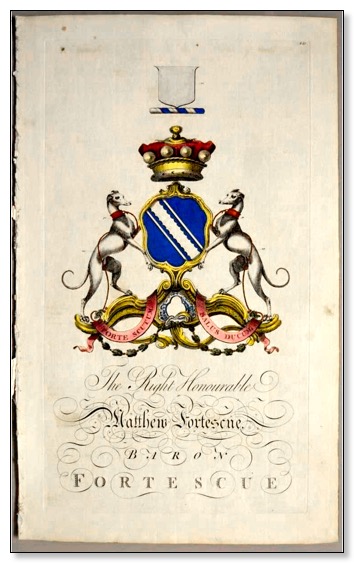
Matthew FORTESCUE Family Coat of Arms (1764)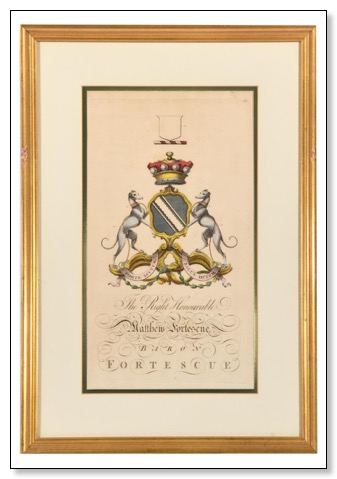 .
. 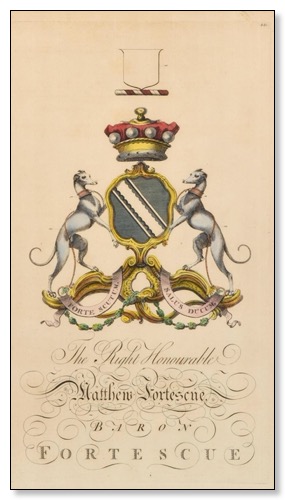
![]()
FORTESCUE COAT OF ARMS FROM JOSEPH EDMONDSON''S "A COMPLETE BODY OF HERALDRY, 1780.
Copperplate engraving. Folio 44 l. depicting the crest of "The Right Honourable Matthew Fortescue, Baron Fortescue" with animal and heraldic motifs. Plate 16.5"h. 9.25"w., framed 25"h. 17.25"w.![]()


Quartered arms of Sir William Strode (d.1637) of Newnham, Plympton St Mary
Quartered arms of Sir William Strode (d.1637) of Newnham, Plympton St Mary.
Wikimedia Commons
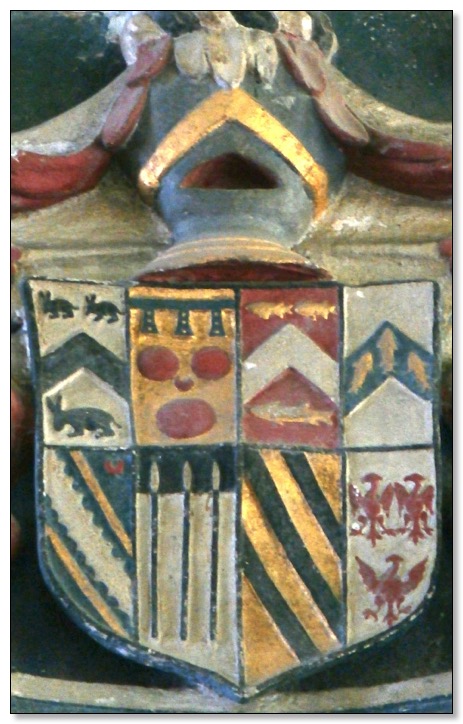
| Quartered arms of Sir William Strode (d.1637) of Newnham, Plympton St Mary. Detail from his mural monument in St Mary's Church, Plympton, Devon. 8 quarters as follows: |
| 1st: Argent, a chevron between three conies sable (Strode); |
| 2nd: Or, three torteaux a label of three points azure each charged with three plates a crescent for difference (Courtenay of Loughtor); |
| 3rd: Gules, a chevron argent between three millets hauriant or ("Militon of Mewy" (Meavy?), per Pole, p.493, with tinctures for chevron & millets reversed) Sir William Strode held the manor of Meavy in Risdon's time, see |
| 4th: Argent, on a chevron azure three fishes or ("Peniles of Luckton" (sic) per Pole, p.496). "Luckton" (sic) is in the parish of Brixham (Pole, p.283), apparently today's "Lupton" (Risdon, p.158); |
| 5th: Azure, a bend engrailed argent cotised or a crescent gules for difference (Fortescue of Wood); |
| 6th: Argent, a chief sable three lances palewise counterchanged (Pole, p.472, amended, "Burley of Clanacomb". Clanacombe House, in the parish of Thurlestone, Devon, survives today as a 17th c mansion. John Strode (son and heir of John Strode by his wife Melior Newnham, heiress of Newnham), married Joane Burley, heiress of Clanacomb ( |
| 7th: Or, three bendlets sable (unknown); |
| 8th: Argent, three eaglets displayed gules (Newnham of Newnham, per Pole, p.494). All references to |
Coat of arms of Hugh Fortescue, 1st Earl Clinton, 14th Baron Clinton (1696–1751)
Coat of arms of Hugh Fortescue, 1st Earl Clinton, 14th Baron Clinton (1696–1751)
Wikimedia Commons
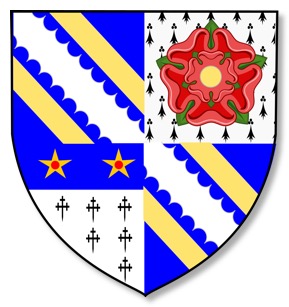
Author : Tinynanorobots 2011
Wikimedia Commons
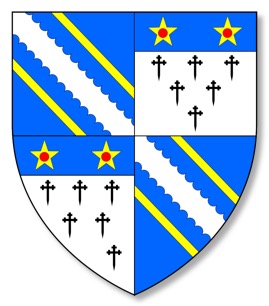
Author : Lobsterthermidor 2019![]()


Arms of Hugh Fortescue, 1st Earl Clinton, 14th Baron Clinton (1696–1751)
Arms of Hugh Fortescue, 1st Earl Clinton, 14th Baron Clinton (1696–1751) (Fortescue quartering Clinton),
detail from top right of an engraving of Castle Hill, Filleigh, Devon, built by the earl.
Wikimedia Commons
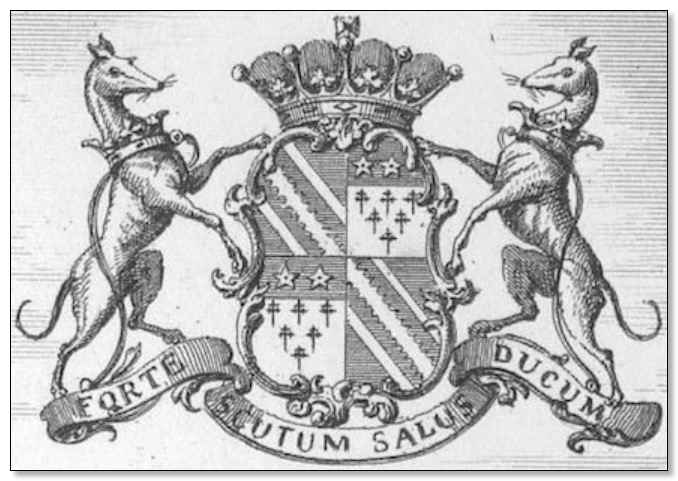
![]()


Engraving of Castle Hill, Filleigh, Devon
Engraving of Castle Hill, Filleigh, Devon
built by Hugh Fortescue, 1st Earl Clinton, 14th Baron Clinton (1696–1751),
whose arms (Fortescue quartering Clinton) are shown at top right.
Wikimedia Commons
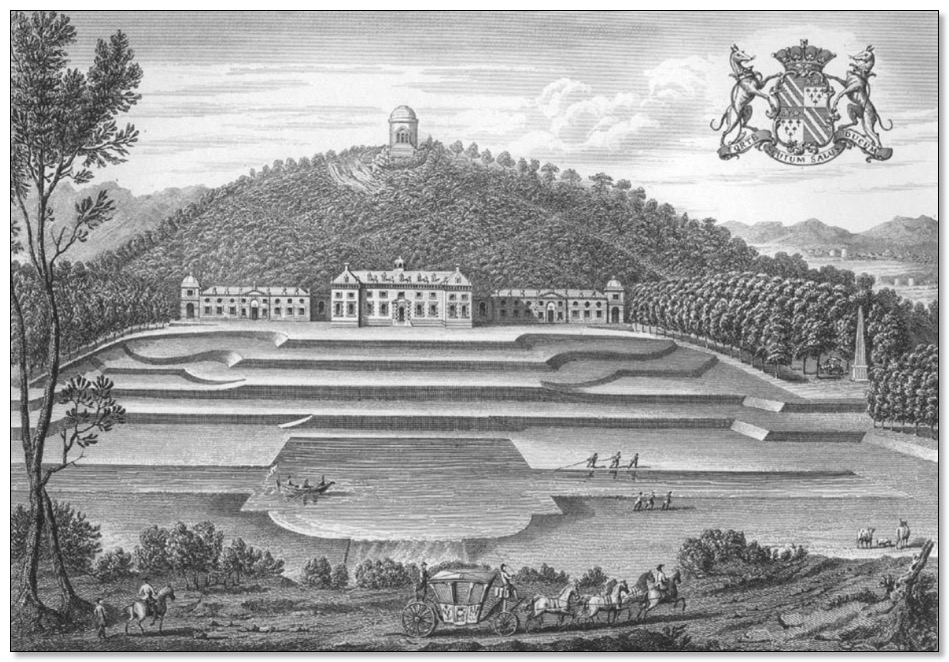
![]()


1779 Antique Print ~ Fortescue ~ Family Crest Coat of Arms
This listing is for the original engraving pictured from the 1779 edition of:
The Peerage of England: by Arthur Collins Esq 1779
Family crest - Coat of arms
Approximate size of sheet:
8 inches x 5 inches
(205mm x 125mm)
![]()


Lord fortescue Coat of Arms Lithograph 1776 Heraldry
Lord Fortescue Coat of Arms Lithograph 1776 Heraldry | #1880385014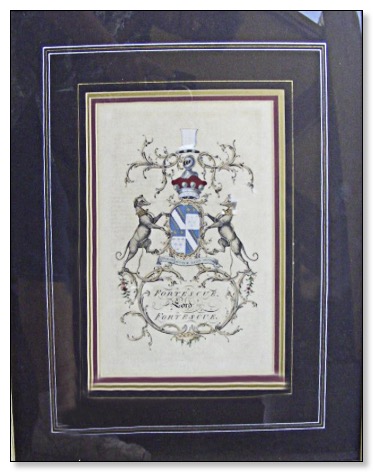
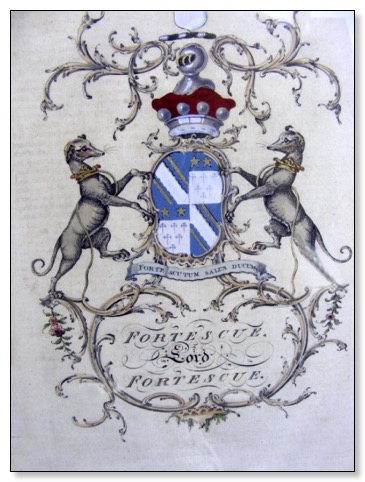
This rare lithograph is from Alexander Jacob's three volume work, "A Complete English Peerage," published London, 1766-1769. The plate is titled Lord Fortescue, and is described on the label as an Original lithograph, dated 1776 by Jacobs of London. Authenticity Guaranteed. If you examine the close up photos, you can see the print on the back side of the the litho.
Jacobs (1731-1785) was educated at Worcester College and afterwards at Merton College, Oxford. He took Holy Orders in 1760 and was chaplain to the Duke of Chandos. In December, 1760, he became one of the chaplains to King George III.
Sight size is 7-1/2" x 10-1/2" and the condition is very good. The paper has normal age toning. This coat-of-arms has been triple matted, highlighted with two hand painted bands around the edge, and is housed in a good gold frame, measuring 19-1/2 x 23 inches overall. ![]()


Fortescue banner of arms in the Fortescue Chapel of St Paul's Church
Devon heraldry - Wikipedia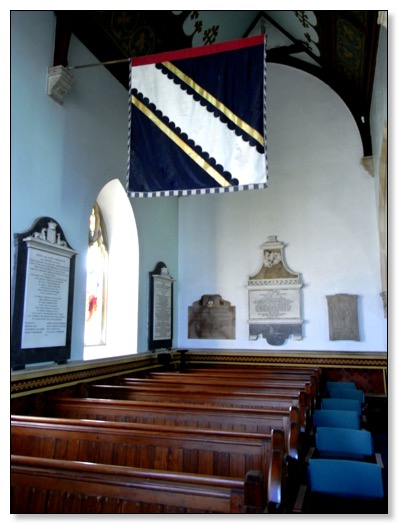
Fortescue banner of arms in the Fortescue Chapel of St Paul's Church, Filleigh, Devon. The Fortescue family (Earl Fortescue) were lords of the manor of Filleigh, in which parish is situated their former seat, Castle Hill. The last Fortescue to own Castle Hill was Lady Margaret Fortescue (1923-2013), eldest daughter and co-heiress of Hugh Fortescue, 5th Earl Fortescue (1888-1958), although now owned by her daughter Eleanor, Countess of Arran (née van Cutsem) who lives there with her husband Arthur Gore, 9th Earl of Arran![]()


Blason de base des familles anglaises.
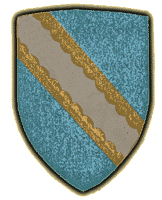

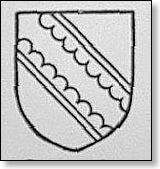 .
. 
![]()

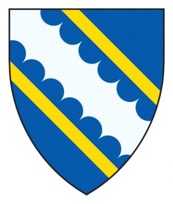

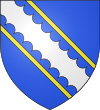
Azur à bande engrêlée d'argent cotisée d'or
azure a bend engrailed argent cotised or
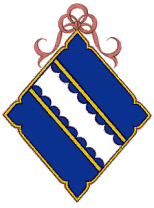 .
. 
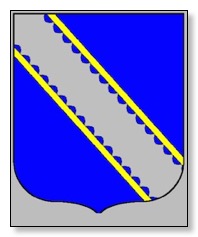 .
. 
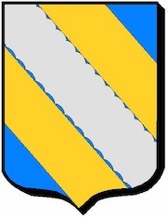
![]()


Coat of arms of Fortescue, Earls Fortescue, Viscounts Ebrington & Barons Fortescue
Coat of arms of Fortescue,
Earls Fortescue, Viscounts Ebrington & Barons Fortescue:
Azure, a bend engrailled argent plain cottised or
(Source: Debrett's Peerage, 1968, p.461)
Wikimedia Commons
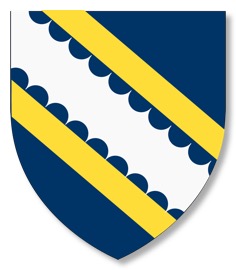
Author : Tinynanorobots 2011![]()


Arms of Gerald Fortescue
Arms of Gerald Fortescue
Wikimedia Commons
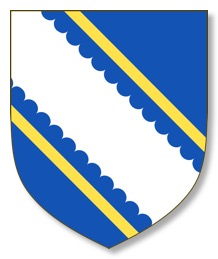
Author : Sodacan 2018![]()


Armoiries Anglaises - House of Fortescue
Barons Clinton in the Peerage of England (1298-abeyance terminated 1721,abeyant 1751 )
Baron Fortescue in the Peerage of Great Britain (1746)
Earl of Clinton in the Peerage of Great Britain (1746-1751)
Earls Fortescue in the Peerage of Great Britain (1789)
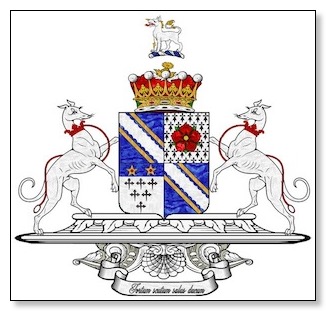
1st Earl of Clinton and 1st Baron Fortescue, 14th Baron Clinton
Hugh Fortescue, (1696–1751) 1st Earl of Clinton and 1st Baron Fortescue, 14th Baron Clinton. He was created Baron Fortescue, with remainder, failing heirs male of his body, to his half-brother Matthew Fortescue. Great grandson of 4th Earl of Lincoln and 12th Baron Clinton.
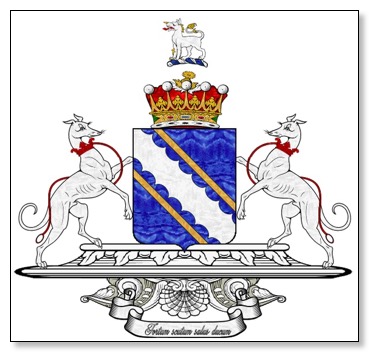
Earls Fortescue
- Matthew Fortescue, (1719–1785) 2nd Baron Fortescue, half brother of Earl of Clinton.
- Hugh Fortescue, (1753–1841) 1st Earl Fortescue and Viscount Ebrington, 3rd Baron Fortescue.
- Hugh Fortescue, (1783–1861) 2nd Earl Fortescue.
- Hugh Fortescue, (1818–1905) 3rd Earl Fortescue.
- Hugh Fortescue, (1854–1932) 4th Earl Fortescue.
- Hugh William Fortescue, (1888–1958) 5th Earl Fortescue.
- Denzil George Fortescue, (1893–1977) 6th Earl Fortescue.
- Richard Archibald Fortescue, (1922–1993) 7th Earl Fortescue.
- Charles Hugh Richard Fortescue, (b. 1951) 8th Earl Fortescue.
Viscounts Clermont in the Peerage of Ireland (1776-1829) Earl of Clermont in the Peerage of Ireland (1777-1806)
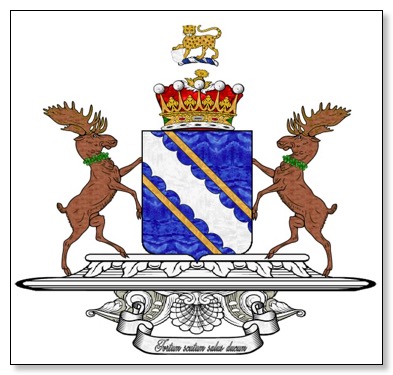
Earl of Clermont
- William Henry Fortescue, (1722–1806) 1st Earl of Clermont, 1st Viscount Clermont KP.
- William Charles Fortescue, (1764–1829) 2nd Viscount Clermont.
Barons Fortescue of Credan in the Peerage of Ireland (1746-1781)
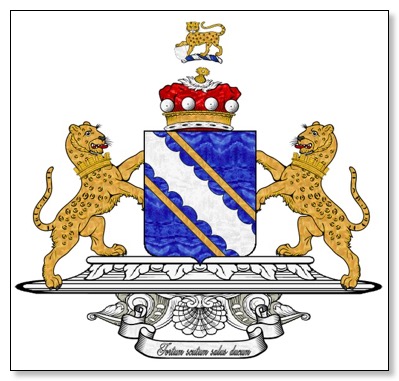
Barons Fortescue of Credan
- John Fortescue Aland, (1670–1746) 1st Baron Fortescue of Credan.
- Dormer Fortescue Aland, (d.1781) 2nd Baron Fortescue of Credan.
Baron Clermont of Dromisken in the Peerage of Ireland (1852-1898) Baron Clermont of Clermont Park in the Peerage of the United Kingdom (1866-1887) Baron Carlingford in the Peerage of the United Kingdom (1874-1898)
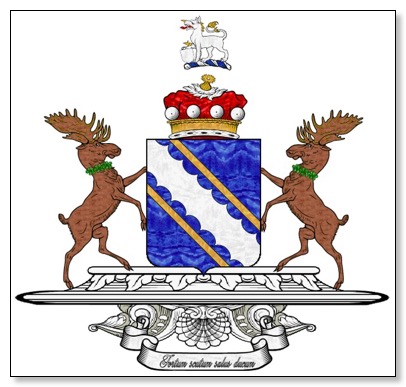
1st Baron Clermont of Dromisken
- Thomas Fortescue (1815-1887) 1st Baron Clermont of Dromisken, created with a special remainder to his brother Chichester, and 1st Baron Clermont of Clermont Park.
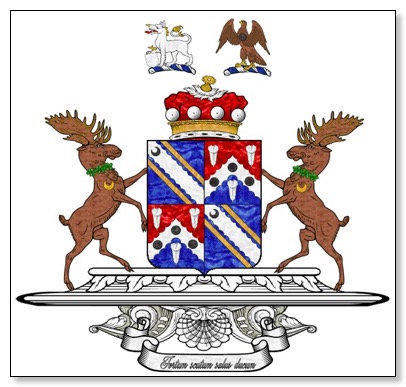
1st Baron Carlingford and 2nd Baron Clermont of Dromisken.
- Chichester Samuel Parkinson-Fortescue (1823-1898) 1st Baron Carlingford, 2nd Baron Clermont of Dromisken.
.
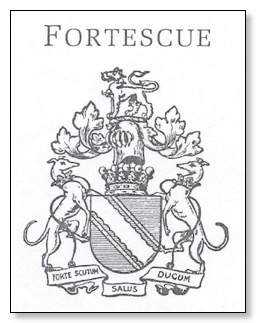
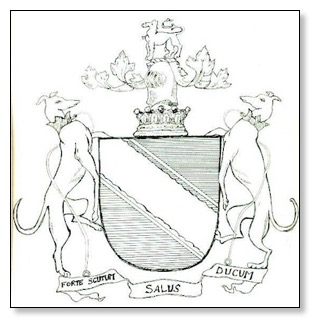
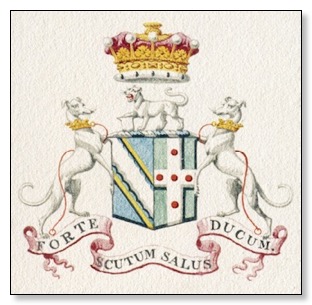 .
. Hugh Fortescue, 1st Earl Fortescue - Wikipedia
Heraldic achievement of Hugh Fortescue, 1st Earl Fortescue, showing arms of Fortescue impaling Grenville, c.1800, Possibly from a bookplate: Baron: Azure, a bend engrailled argent plain cottised or; Femme: Vert, on a cross argent five torteaux. The Latin motto of Fortescue is shown beneath: Forte Scutum Salus Ducum ("A Strong Shield is the Salvation of Leaders")


Armoiries Anglaises - Copperplate Engraving
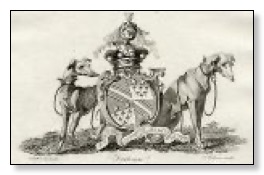 . .
. . 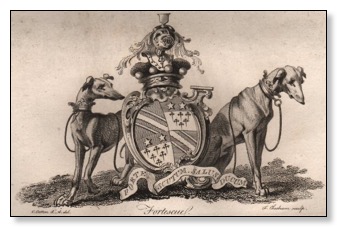
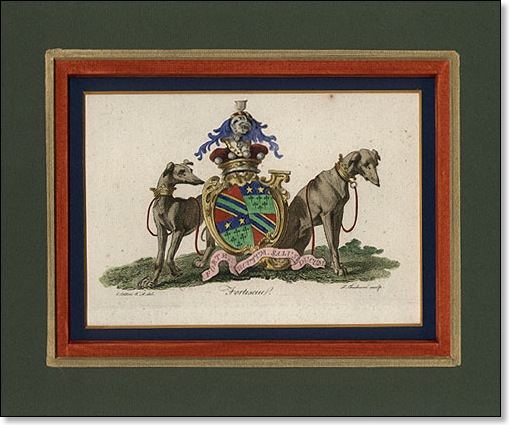 .
. 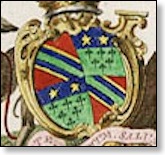
Fortescue - 1790
From The Peerage of England
Artist: Charles Catton
Copperplate Engraving with hand coloring
(Hand painted treble mounting)
10 5/8" x 8 3/4"
$ 100.00![]()
![]()


Image from page 570 of "A genealogical and heraldic history...

Identifier: heraldichistory02burk
Title: A genealogical and heraldic history of the commoners of Great Britain and Ireland
enjoying territorial possessions or high official rank, but uninvested with heritable honours
Year: 1836 (1830s)
Authors: Burke, John, 1787-1848
Subjects: Heraldry
Publisher: London, H. Colburn [etc., etc.]
Contributing Library: Getty Research Institute
Digitizing Sponsor: Getty Research Institute
Text Appearing Before Image:
o—Forte scutum salus ducura. Estates—Besides Fallapit and the manor and advowson of East Allington, various estates, in the county of Devon, are andhave been held by this family from time immemorial. Seal—Fallapit, in the county of Devon. FORTESCUE, OF BUCKLAND FILLEIGH. FORTESCUE-INGLETT, JOHN, esq. of Buckland Filleigh, in the county of Devon, b. 23rd October, 1758, m. first, Sept. 1788, at All Saints church, Southampton, Anne, daughter of Thomas Sanders esq. meichant, of Exeter, and has an only son, John-Dicker, of Widmouth Villa, near Stratton, Corn-wall, b. 3rd August, 1789, M.A. of Oriel College,Oxford, major of the North Devon Yeomanry Cavalry, and captain of the South Devon regiment ofMilitia, a magistrate and deputy lieutenant in Devon and Cornwall. Mr. Fortescue espoused, secondly, in 1818, Sarah Bridget, daughter and co-heir of James Marwood, esq. ofSutton, in Devonshire, and widow of Henry Stevens, esq.of Cross, in the same county, by whom, now deceased,le had no issue.
Text Appearing After Image:
FORTESCUE, OF BUCKLAND FILLEIGH. 545 This gentleman is in the magistracy and lieutenancy for Devonshire and CornwallHe is lieutenant-colonel of the North Devon Yeomanry Cavali7, and lieutenant colonel of the Tornidge Local Militia. He was twice nominated sheriff for Devonshire,but excused, being receiver-general of taxes for the county. Umeage. Sir John Foutesclm:, knt. youngerbrother of Henry Fortescue, chief justice of Ireland, and second son of Sir John Fortescue (see p. 541), was called, in 1430, to the degree of serjeant-at-law, and, in 1441,constituted kings Serjeant; the next year he was made lord chief justice of England, being an especial favourite of King Henry VI. to whom he was eventually lord chancellor.In April, 1463, he embarked with Queen Margaret, Prince Edward, and many persons of distinction, who followed the fortunes of the House of Lancaster, at Bamburg,irind landed at Sluys, in Flanders. Remaining several years in exile, he composed his celebrated treatise De Laudibus ….![]()


Armoiries Anglaises - Fortescue Inn, Salcombe, Devon
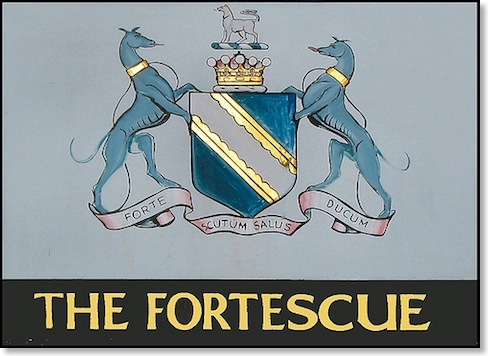
http://www.flickr.com/photos/lincolnian/3966909782/
Tucked away in Union Street in Salcome is the Fortescue Inn.
The large pub sign seen here, which can be seen down Fore Street, carries the Fortescue coat of arms.
The family has an history going back to when they arrived in England in 1066 with William the Conqueror
and legend has it that one Sir Richard le Fort saved William’s life by shielding him from his enemies
and thus the family motto “Forte Scutum Salus Ducum”, a strong shield saves the kingdom.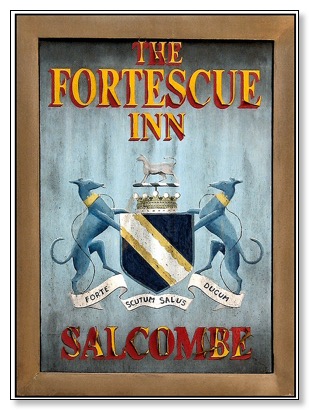
http://www.flickr.com/photos/lincolnian/3966909832/in/photostream/
A well as the large pub sign (seen here) the Fortescue inn sports a double sided sign which can only be seen from Union Street.
This side again shows the Fortescue coat of arms.
The family has an history going back to when they arrived in England in 1066 with William the Conqueror
and legend has it that one Sir Richard le Fort saved William’s life by shielding him from his enemies
and thus the family motto “Forte Scutum Salus Ducum”, a strong shield saves the kingdom.
The other side of the sign seen here carries a Fortescue portrait.![]()


Sceau figurant sur un manuscrit de Env. 1250
Sceau figurant sur un acte manuscrit conservé à l'Eton College Library (GB)
datant d'environ 1250
http://fortescue.org/site/wp-content/uploads/2012/10/First-Fortescues.pdf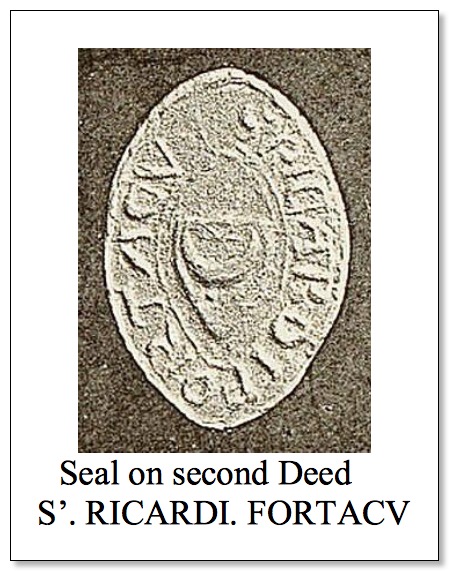
![]()


Sceau figurant sur un manuscrit de Env. 1195
Sceau figurant sur un acte manuscrit conservé à l'Eton College Library (GB)
datant d'environ 1195
http://fortescue.org/site/wp-content/uploads/2012/10/First-Fortescues.pdf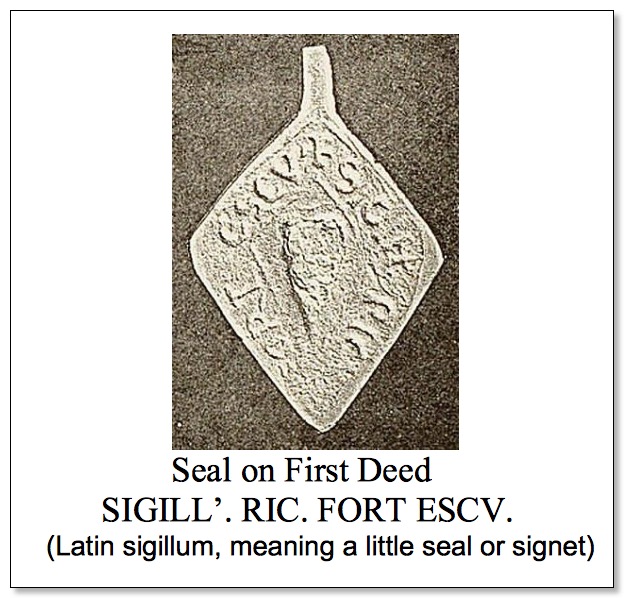
![]()


Armoiries Anglaises et Devise familiale
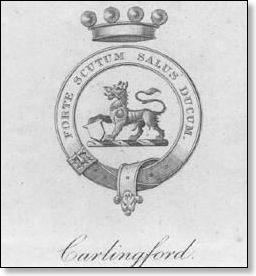 .
. 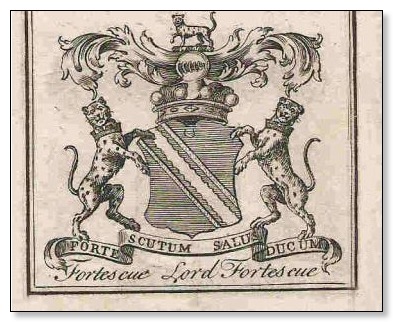
"FORTE SCUTUM SALUS DUCUM"
"A Strong Shield is the Salvation of Leaders"
( Un Fort Ecu le Salut des Chefs )![]()


Bloodstone Fob Seal With Fortescue Family Crest

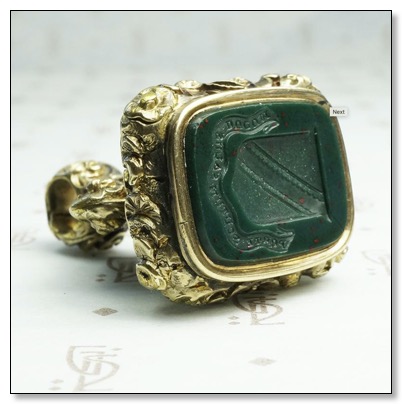
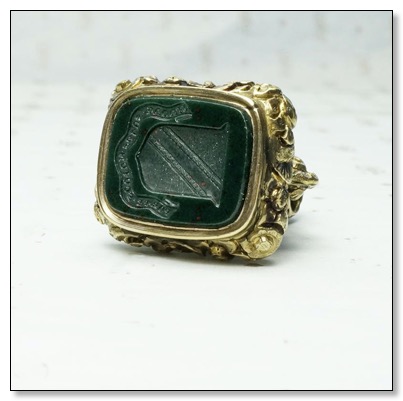
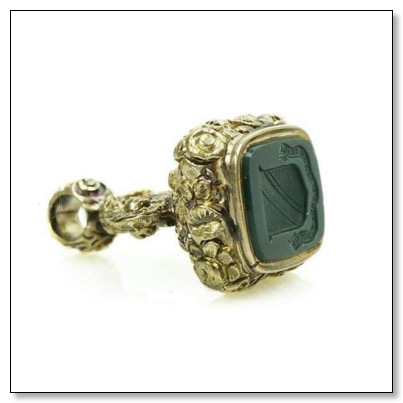
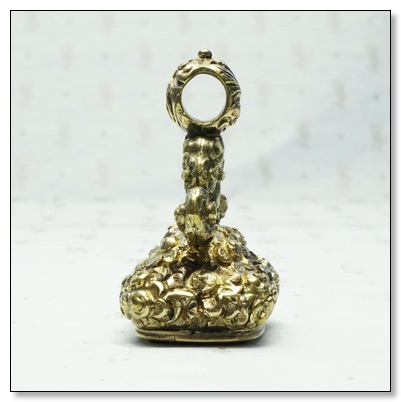
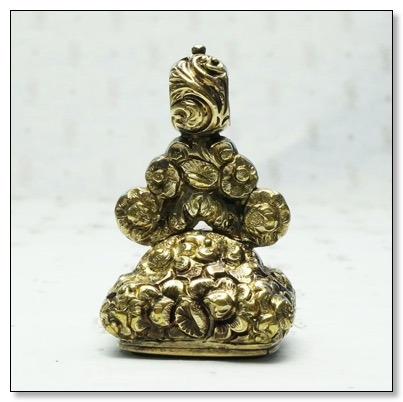
Flowers and more flowers in the deeply carved details of this fob.
The Bloodstone seal is carved with the Fortescue Motto & Armorial Shield.
The motto "Forte Scutum Salus Ducum" translates to "A strong shield is the foundation of leaders".
The metal of the fob is gold sheeted, a process where a thick layer of gold was laid over a base metal to create a heavily detailed yet durable design.
The carving is in excellent condition with no damage to the stone and the metal shows light wear in keeping with its age.
This piece dates from the early 1800's.
Details.....The fob measures 35.7mm tall. 17.9mm x 15.7mm across the base.![]()


Plates with Fortescue arms
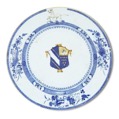
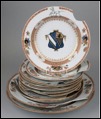
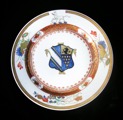
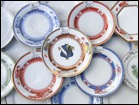
A Chinese porcelain Armorial part dinner service with the arms of Fortescue impaling Dormer,
circa 1723, (HO81/21) that is being offered at our Honiton salerooms on Tuesday, 10th December 2013 and via the Internet.
![]()


George II Sterling Silver Salver, London, 1756-57
Bucket Wine Cooler

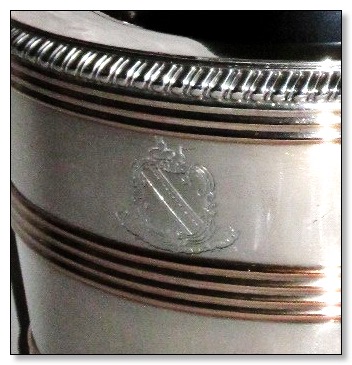

18th Century Old Sheffield Plate silver bucket wine cooler, circa 1795
Of coopered form, with twisted rope handles and a gadrooned border.
Retaining its original liner & rim. Engraved with an armorial shield and inscribed motto:
Forte Scutem Salus Ducum (A strong shield is the safeguard of our leaders) Family: Fortescue.
Later retailed by Garrards, Panton Street, London.
Height inc handles: 8”Diam inc handles: 9”
Origin: ENGLISH![]()



